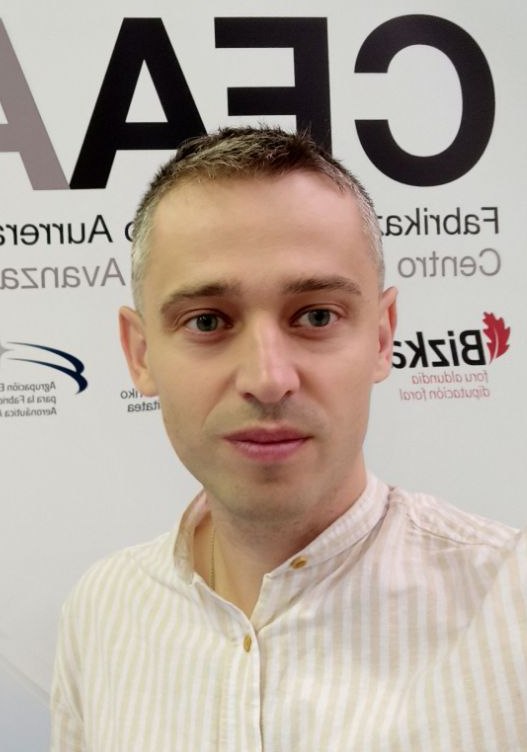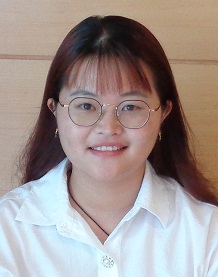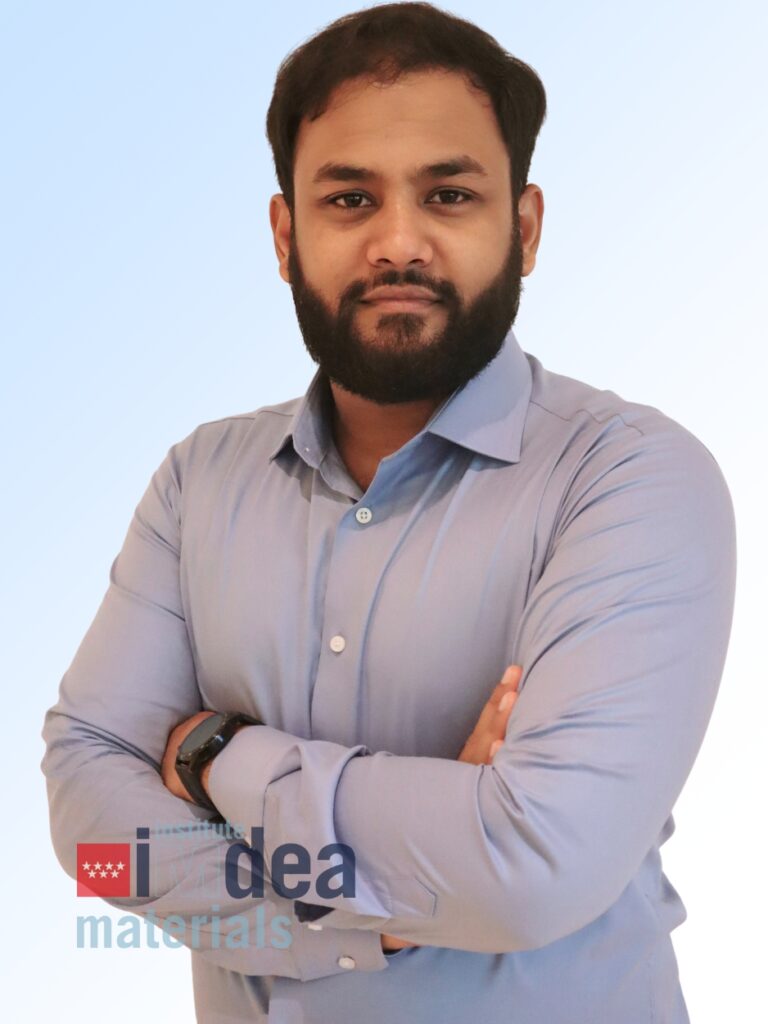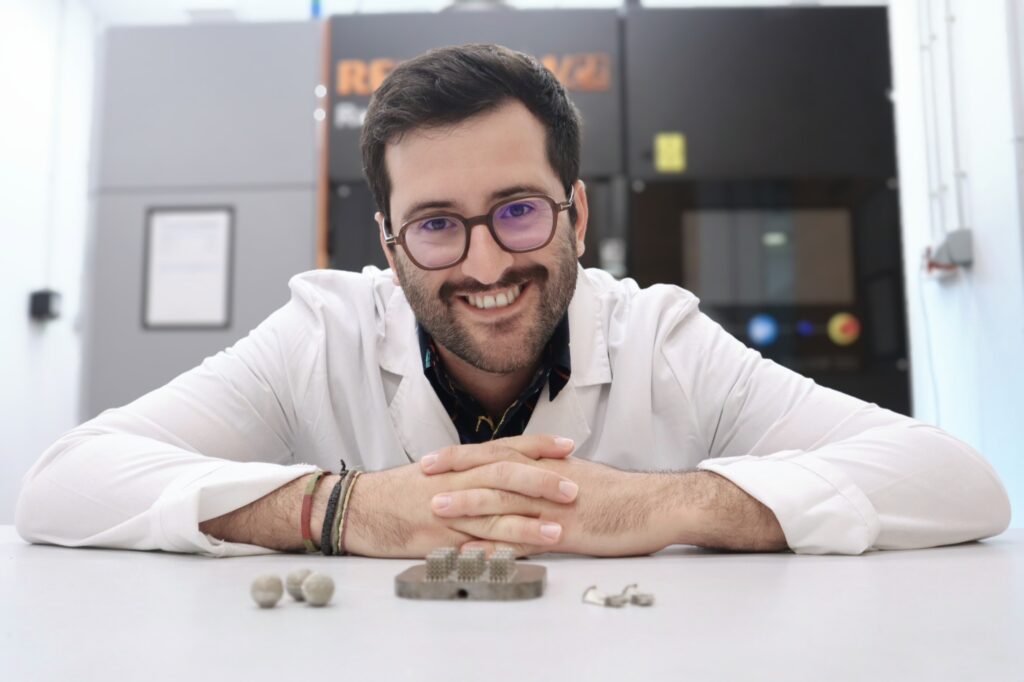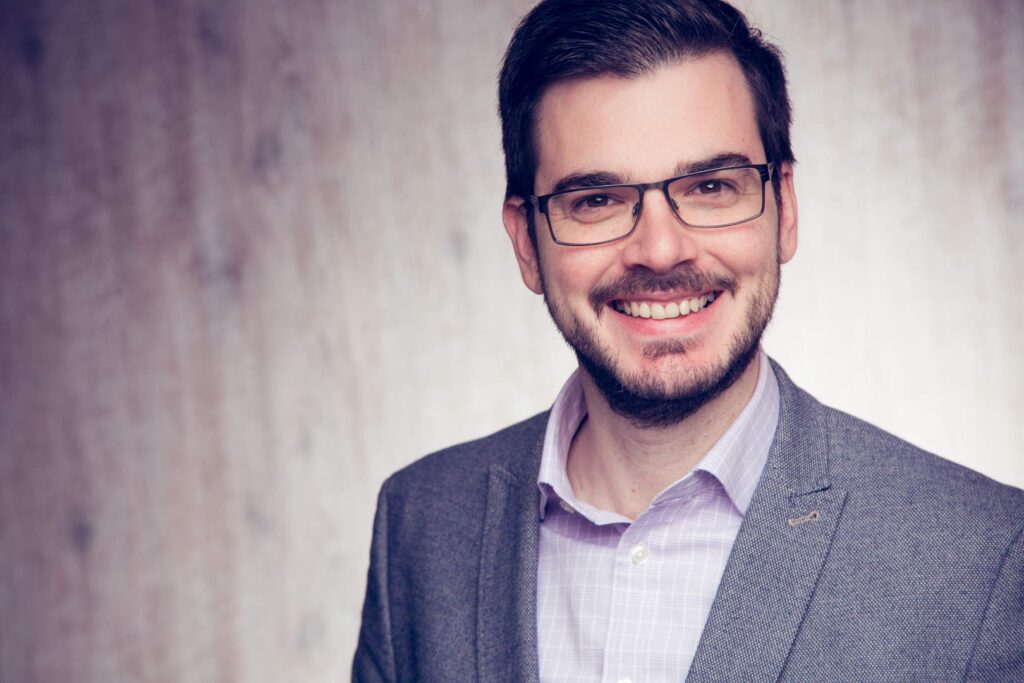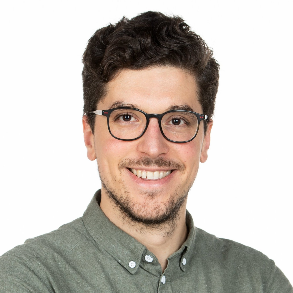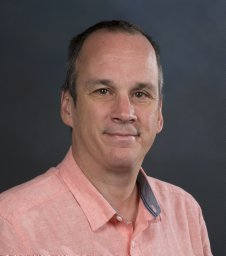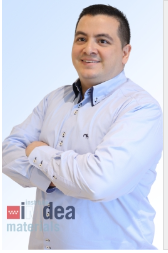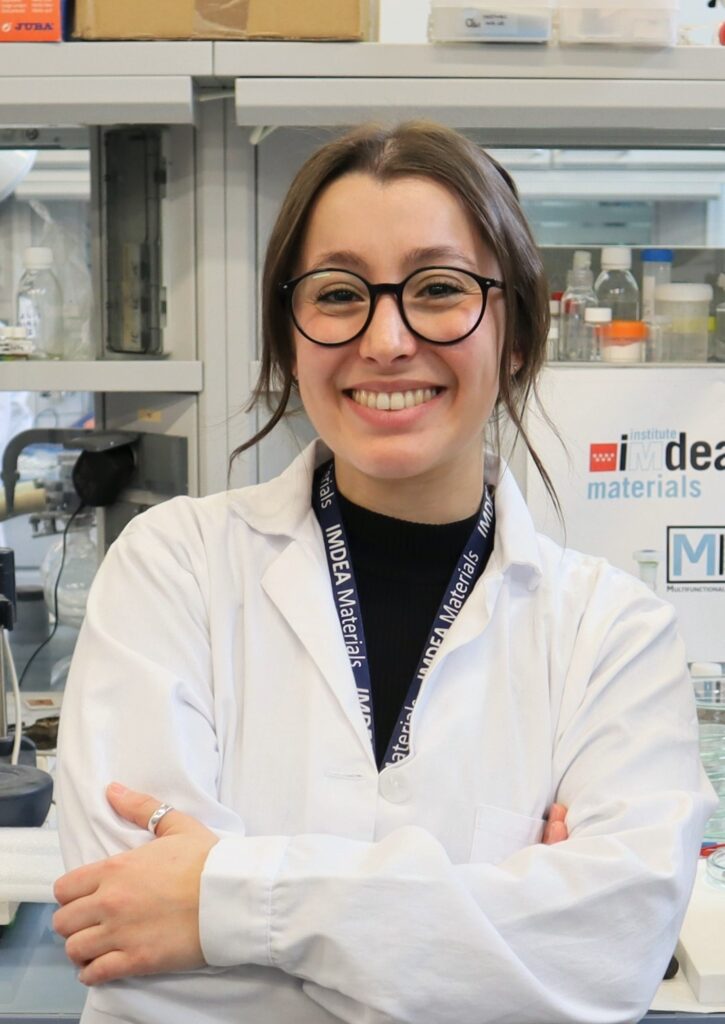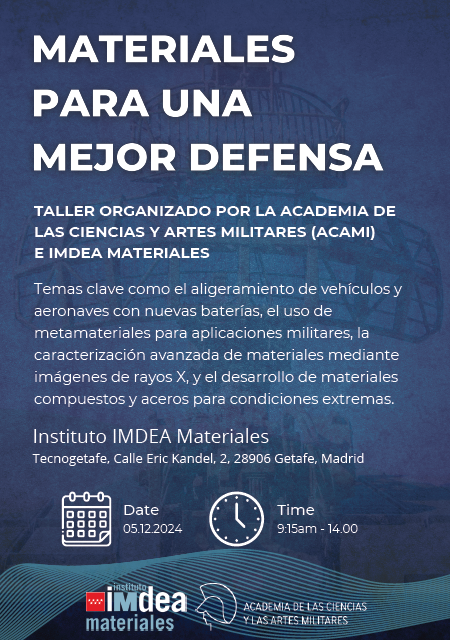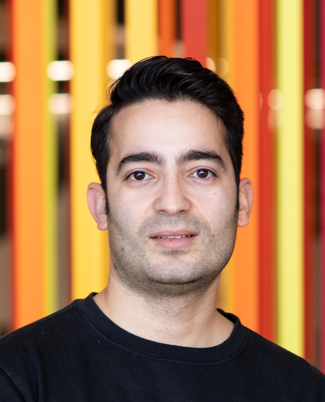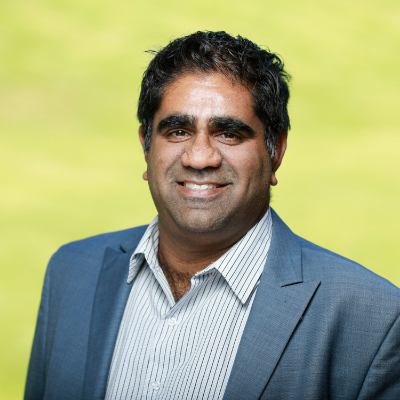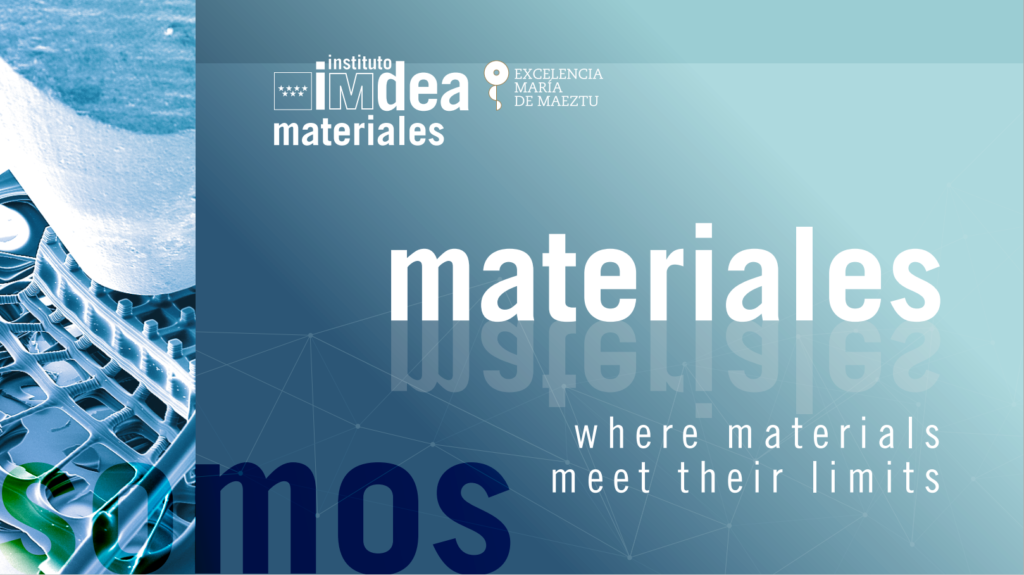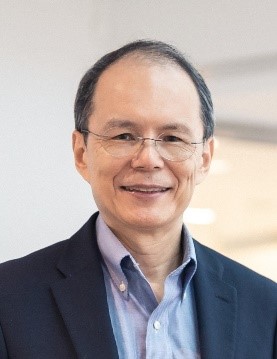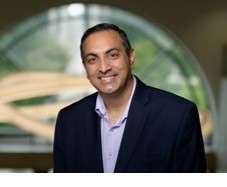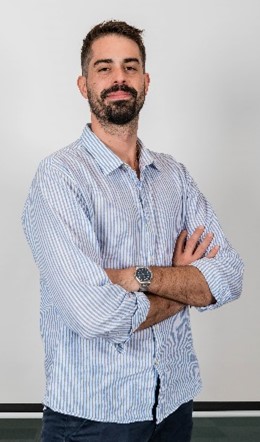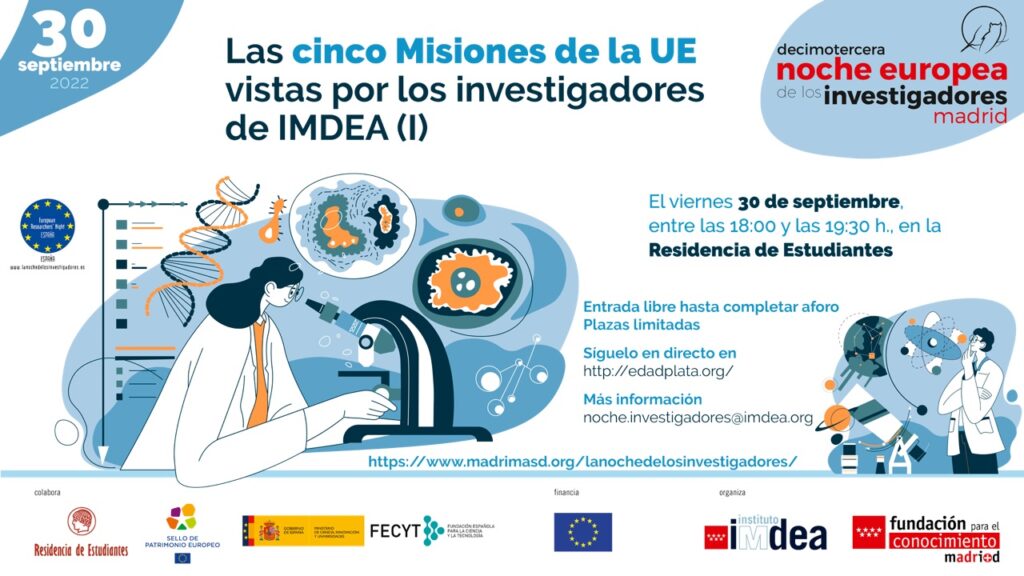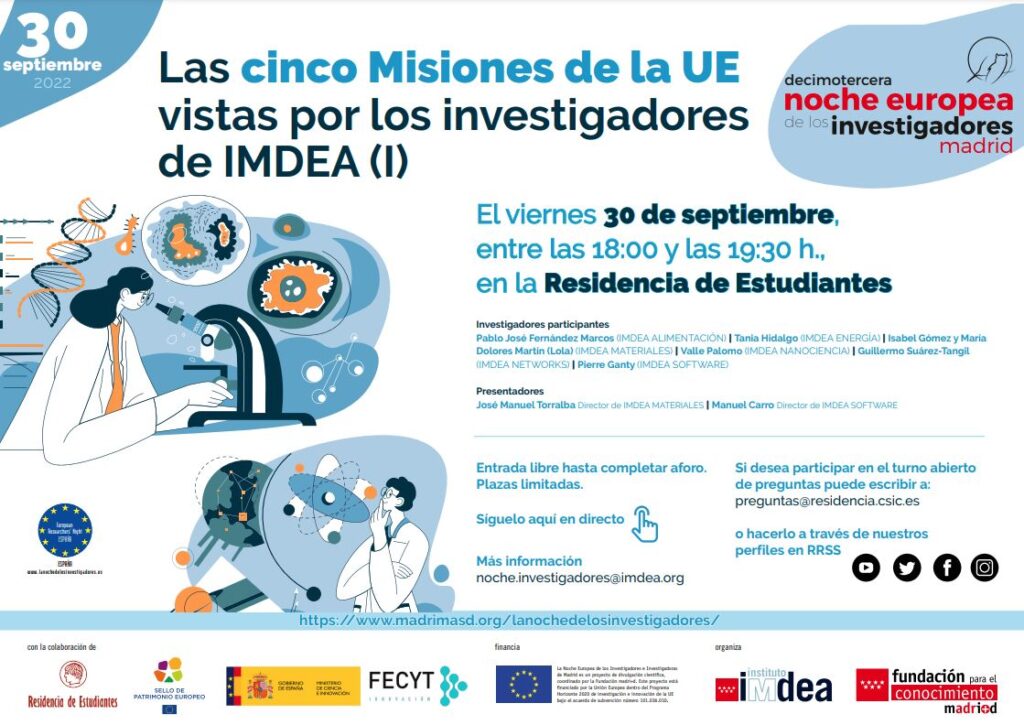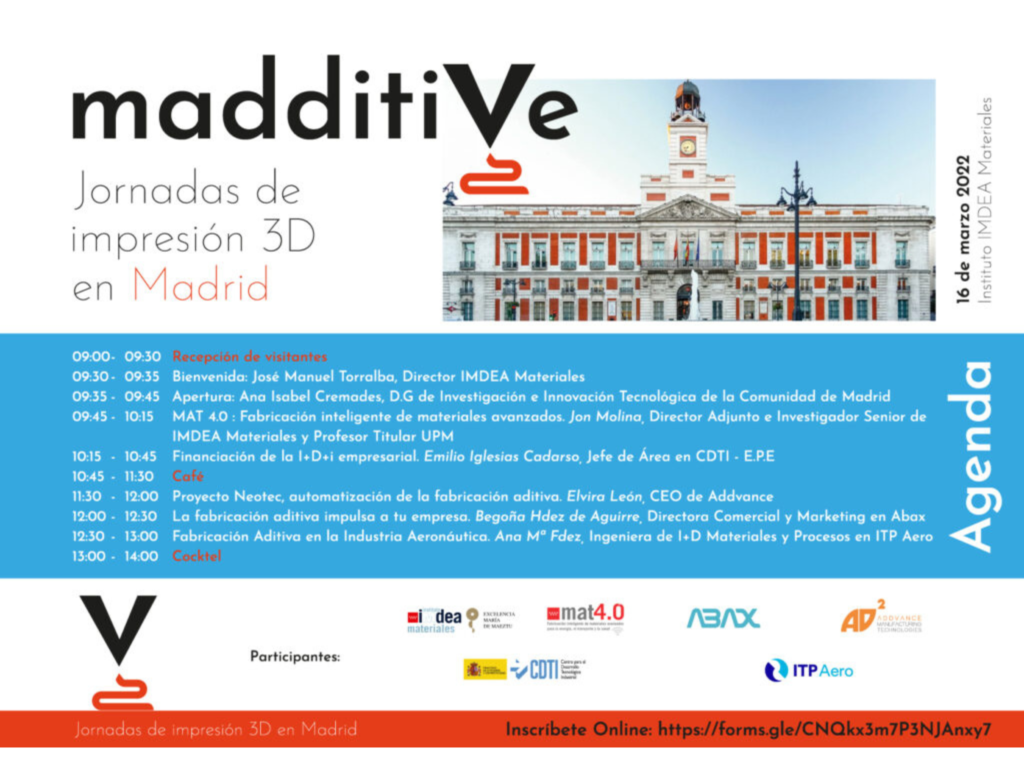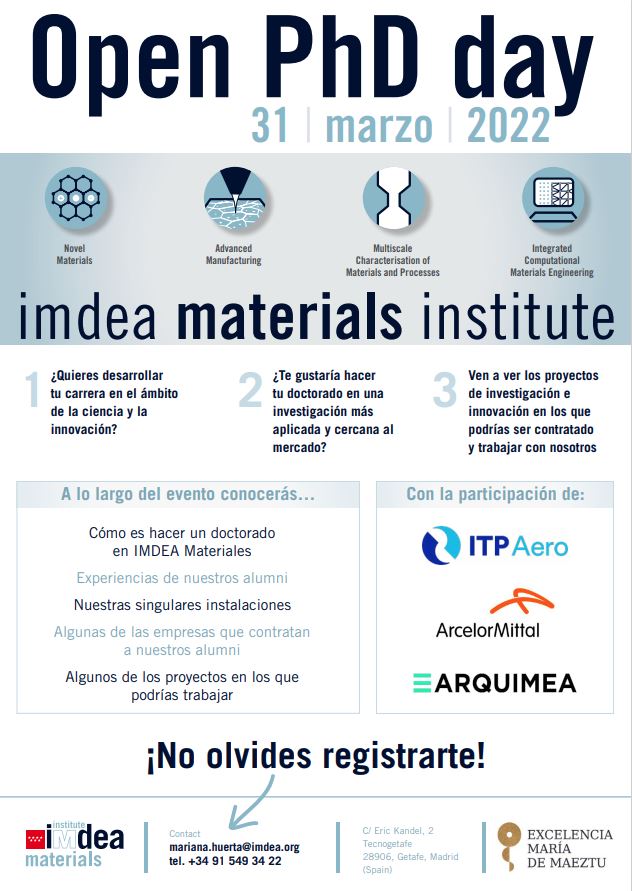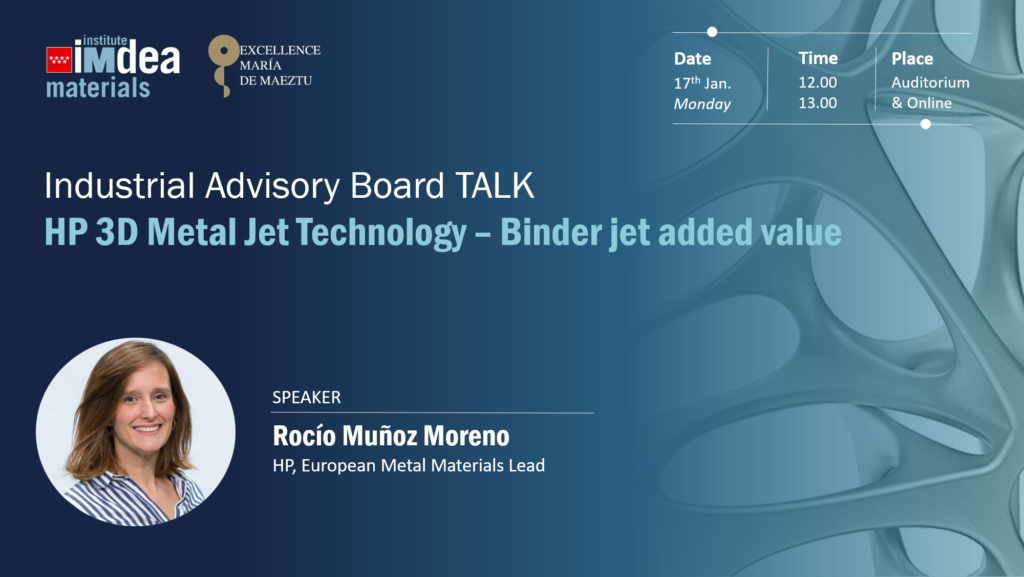The PhD defence will take place in the Video Room 3.S1.08, Rey Pastor Library Building of Universidad Carlos III de Madrid.How to get there: https://www.google.com/maps/place/Av.+de+la+Universidad,+30,+28911+Legan%C3%A9s,+Madrid,+Spain (Avda. de la Universidad, 30, Rey Pastor Building,
Seminar by Dmytro Lesyk, from the Aeronautics Advanced Manufacturing Center (CFAA) of the University of the Basque Country (EHU), entitled “Laser PBF Additive Manufacturing and Post-Processing Superalloys” – on Thursday 29, at 10:00a.m, in the Board of Trustees Room.
Abstract: Laser powder bed fusion (LPBF) additive manufacturing of precise metal components for aerospace and biomedical applications using key powder materials with exceptional properties, such as Ti-, Ni-, and Co-based alloys, is a promising approach, given the possibility of reducing the part
Seminar by Prof. Jan G. Korvink from Karlsruhe Institute of Technology, Germany, entitled “High-resolution magnetic resonance on moving fluids, tissues, and insects” – on February 3, at noon, in the Auditorium.
Abstract: Our understanding of natural processes in the life sciences is very strongly dependent on our ability to observe in sufficient detail how an organism’s biochemical processes evolve, and how they connect to that organism’s overall behaviour. This is partially a technical issue, because
FYA of Laura Rosso entitled “Design and development of metal halide perovskite for photocatalytic applications” – 21st January at 11:30 a.m. in the Seminar Room.
Abstract: Metal halide perovskites have attracted increasing attention in recent years due to their outstanding physico-chemical properties and excellent performance in diverse photocatalytic reactions. However, most studies focus on lead-based perovskites, whose toxicity has driven the search
Seminar by Professor Richard M. Hall. from University of Birmingham, entitled “Beyond the standard – the case for advanced testing of orthopaedic implants.” – on February 10, at noon, in the Seminar Room.
Abstract: Joint replacement is rightfully considered one of the most techno-clinical success stories of the latter part of the 20th Century with numerous patients particularly those of advancing years having improved quality of life. Despite the latest range of materials having substantially
Seminar by Prof. Dr. Xiaoyu Ju from the University of Science and Technology of China, entitled “Research on the Fire Characteristics and Prevention and Control Technologies of EVs in Underground Garages” – on January 30th, at 11:30 am, in the Seminar Room.
Abstract: With the growing number of electric vehicles (EVs) in underground parking garages, new fire risks emerge that are not adequately addressed by current safety standards. Our research tackles this urgent issue by developing a targeted fire suppression solution. Through full-scale
Seminar by Dr. Muhammad Naeem, MSCA Senior Post-doctoral Researcher at IMDEA Materials Institute, entitled “Decoding cryogenic deformation mechanisms through in-situ neutron and synchrotron diffraction” – on January 22, at noon, in the Auditorium.
Abstract: The performance of metallic materials under cryogenic conditions is critical for advancing technologies in aerospace, hydrogen economy, and superconductivity. However, designing alloys for these extreme environments is challenging due to the complex interplay of deformation mechanisms
PhD Defense of Wei Tang, entitled “Construction of Efficient Intumescent Flame-Retardant Systems Based on Multi-Group Synergy: Properties and Mechanism in Polypropylene” – On January 23rd, 2026 at 10:30 AM.
The PhD defence will take place in Aula 225, Departamental I, Campus de Alcorcón. How to get there: Google Maps – Campus de Alcorcón (Universidad Rey Juan Carlos)https://www.google.com/maps/search/Campus+de+Alcorcón+Universidad+Rey+Juan+Carlos The dissertation is titled “Construction of
Doctoral Thesis Defence: Guillermo Domínguez – January 16, 2026
On January 16th, 2026, Guillermo Dominguez will defend his doctoral thesis entitled “Effects “of chemical composition, surface treatments, and processing technique on the corrosion and cytocompatibility of Zn and Mg alloys. It was advised by Prof. Javier Llorca and Dr. Mónica Echeverry The PhD
FYA of Preethi Ramesh Narayan entitled “Moiré Mechanical Metamaterials” – January 15, 2026 at 10:00a.m in the Seminar Room.
Abstract: The moiré effect is an interference phenomenon that occurs when two regular geometric arrangements are superimposed, resulting in large-scale fringe patterns that become particularly prominent at acute angles. These arrangements produce waves with noticeable moiré wavelengths, a
Seminar of Daniel Garcia-Gonzalez, entitled “Magneto-mechanics for biology: soft robotic platforms to control cellular mechanobiology” – January 15th, 2026
Abstract: Understanding how cells sense and respond to mechanical cues is a central challenge in mechanobiology, yet current experimental platforms offer limited control over dynamic and spatially heterogeneous mechanical environments. In this talk, I will introduce our work at the intersection
Seminar by Prof. Dr. Dan Xiao from Hochschule für Technik und Wirtschaft Dresden, entitled “High-performance Recyclable Fire Retardant Polymer Composites/Nanocomposites Enabled by Electron Beam Treatment” – on December 15th, 2025, at 11:30 AM, in the Seminar Room.
Abstract: Trillions of dollars of polymer products, such as wires and cables, hydrogels, tires, heat shrinkable films, wood plastic for floor, tubes, etching, disinfection, harm removal, 3D printing, and coating etc. have been recreated by electron beam (EB) technology every year. Over the past
FYA of Jinyi Huang entitled “Silk Fibroin-Based Composite Piezoelectric Scaffolds for Articular Cartilage Regeneration”. November 21st, at 11:30 am in the Seminar Room.
PhD Defense of Mingyang Zhang, entitled “Fire-safe lithium-ion batteries: material, assessment, and mechanism” – On November 20th, 2025, at 11:00 AM.
The PhD defence will take place on Aula 31, first floor, at the Polytechnic University of Madrid. How to get there: Campus, Calle del Prof. Aranguren, 3, 28040 Madrid. The dissertation is titled “Fire-safe lithium-ion batteries: material, assessment, and mechanism”. It has been advised by
Seminar by Dr. Mert Celikin from University College Dublin, entitled “The Challenges in Metal Additive Manufacturing of Titanium & Magnesium-based Implants” – on November 3rd, at 12:00, in the Seminar Room.
Abstract: The first part of the talk will be on the challenges and the potential solutions of titanium (Ti)-based alloy processing through Additive Manufacturing (AM), also known as 3D printing. AM, which allows the realisation of a metallic component with complex geometries not achievable by
Seminar by Dr. Ni Qianqian from the National University of Singapore, entitled “Platform technologies for targeted delivery of RNA therapeutics” – on November 14, 2025, at 11:30, in the Seminar Room.
Abstract: Since the advent of COVID-19 mRNA vaccines, mRNA has become one of the most promising nucleic acid therapeutics. However, a major challenge now is how to deliver mRNA to targeting cells effectively and increase mRNA expression yield but de-risk potential toxicity to expand its clinical
FYA of Vittoria Squartecchia entitled “Phase-Field Modeling of Magnesium Alloy Degradation for Biomedical Applications” – 27th of October at 12:00 in the Seminar Room.
Abstract: Biodegradable magnesium (Mg) alloys represent a promising class of materials for next-generation biomedical implants, particularly endoluminal devices. Their major limitation, however, lies in the difficulty of controlling corrosion in the aggressive physiological environment, where
FYA of Ahsan Kaleem entitled “Thermomechanical Models for Additive Manufacturing Processes: Theory and Implementation” – October 10 at noon in the Seminar Room.
Abstract: "Additive manufacturing processes are predominantly governed by complex thermomechanical interactions that critically influence the mechanical properties and the quality of the final product. This study first developed a mathematical framework of general small-strain thermo-mechanics
Innovation talks entitled “crystal semiconductor techologies: from the crystal growthh lab to the market” – Thursday, October 9th, at noon in the seminar room
Abstract:In this talk, José Luis Plaza will briefly discuss the development of Crystal Semiconductor Technologies company, born at the Crystal Growth Laboratory of the Autonomous University of Madrid (LCC-UAM). He will introduce how the knowledge gained from more than 40 years of experience led to
Seminar by Dr. Christos SOFRAS, postdoctoral researcher at EMPA, Switzerland., entitled “Microstructure design by additive manufacturing” – on October 17th at noon (Board of Trustees room).
Abstract: Beyond its capability to create intricate geometries, Laser Powder Bed Fusion (L-PBF) is a powerful tool for tailoring the microstructure of metallic materials. By carefully adjusting process parameters, L-PBF enables fine tuning of crystallographic textures – a particularly critical
Next Thursday, October 9th, at noon, there will be another session of our innovation talks, where “deep science” companies explain their entrepreneurship journey rooted in an academic setting like ours. This time, José Luis Plaza will tell the story of Crystal Semiconductors, a spin-off company of UAM in crystal growth technologies. You can find more details of her talk below.
Abstract: In this talk, José Luis Plaza will briefly discuss the development of Crystal Semiconductor Technologies company, born at the Crystal Growth Laboratory of the Autonomous University of Madrid (LCC-UAM). He will introduce how the knowledge gained from more than 40 years of experience led
Seminar by Prof. Joana Loureiro from the Faculty of Engineering – University of Porto, entitled “Challenges in the design and development of drug delivery systems for targeted disease treatment” – on 23rd October 2025, at 12:00, in the Seminar Room.
Abstract: The talk will explore the key challenges in the design and development of drug delivery systems aimed at targeted disease treatment. Special emphasis will be placed on strategies for crossing biological barriers, with a focus on targeting the brain, while also considering broader
Seminar by Prof. Sam Kassegne from San Diego State University, entitled “Re-Imagining Carbon: The Quest for Material Discovery and Synthesis of New and Novel Carbon Hybrids” – on Thursday, September 25th, 2025, at noon, in the Seminar Room
Abstract: The development of new and novel materials is critical for driving innovations in the next generation of devices and systems for applications in nanoelectronics, energy conversion and storage, and quantum computing. As the limitations of silicon-based technologies become increasingly
FYA of Henry Summers, entitled “The Coupled Influence of Microstructure and Architecture on Additively Manufactured Inconel 718 Lattice Structures” – 25th of September at 3:00 p.m. in the seminar room
Abstract: Additive manufacturing (AM), particularly laser powder bed fusion (LPBF), has revolutionized the fabrication of high-performance metal components for aerospace by enabling more complex geometries to be produced with superior mechanical properties and minimal material waste [1-5].
PhD Defense of Ignacio Rodríguez Barber, entitled “Laser powder bed fusion of Inconel 939: from parameter optimization to microstructural design” – On This Friday, 12 September at 11:00 AM
The PhD defence will take place in Sala 3.S01.08, Edificio Biblioteca Rey Pastor, Universidad Carlos III – Campus de Leganés. It has been advised by Director: Dr. María Teresa Pérez Prado and Academic Tutor: Prof. Mónica Campos Gómez. Here is the University address:Universidad Carlos III –
Seminar of Prof. Paraskevas Kontis, Associate Professor at the Norwegian University of Science and Technology entitled “Atomic-scale engineering for crack-free additively manufactured superalloys.” On September 19th at noon in the seminar room.
Abstract: The presence of minor grain boundary solutes such as boron and zirconium can have significant consequences for the production of superalloys using additive manufacturing methods. On the one hand, their presence in the bulk chemistry is crucial for achieving the required mechanical
Seminar by Prof. Pere Barriobero, Ramón y Cajal researcher at the Polytechnical University of Catalonia, entitled “Real-time monitoring of engineering alloys under manufacturing and service conditions” – on September 11th, 2025, at 12:00 PM, in the Seminar Room.
Abstract: Optimizing the performance of engineering alloys during manufacturing and service conditions requires a keen understanding of their microstructure evolution under applied temperature and load. It is thus a challenging task, because under the influence of an external load and/or
Seminar by Prof. Marie A. Charpagne from the University of Illinois at Urbana-Champaign, entitled “Metastable alloys by design” – on Monday, September 1st, at 11:00am, in the Auditorium.
Abstract: Additive manufacturing (AM) is revolutionizing how we synthesize, produce, and use metallic materials. However, out of hundreds of commercially available engineering alloys, only a handful are readily printable. This arises from the extreme heating and cooling rates associated with AM,
PhD Defense of Yuyao Liu, entitled “Development of 3D-printed biodegradable polymer scaffolds for osteochondral tissue engineering” – On July 23rd, 2025 at 11:00 AM.
The PhD defence will take place in the Leonardo Torres Quevedo Room, Escuela Técnica Superior de Ingenieros de Caminos, Canales y Puertos (UPM).How to get there: Campus, Calle del Prof. Aranguren, 3, 28040 MadridThe dissertation is titled “Development of 3D-printed biodegradable polymer scaffolds
FYA of Rafael Thomey entitled “Investigating and Addressing Degradation Mechanisms in 100% Silicon Nanowire Anodes for Lithium-Ion Batteries”– Wednesday, July 23, 2025 at noon in the auditorium.
Abstract: This thesis investigates key challenges in the development of next-generation lithium-ion batteries by using a fully silicon-based nanowire anode as a model system. The work focuses on understanding the mechanisms responsible for capacity fading—such as SEI instability, mechanical
Seminar by Dra. Maria Crespo-Ribadeneyra from Queen Mary University of London, entitled “Na-ion batteries: from materials sustainability to operando characterisation techniques” – on July 4th, 2025, at 11:00, in the Seminar Room.
Abstract: Sodium ion batteries (SIBs) are a potential alternative to diversify the energy landscape, beyond Lithium-ion batteries (LIBs), due to their similar storage mechanism and easy technology transfer. Currently, the benchmark anodes for SIBs are hard carbons (HCs), since sodium ions do not
Seminar by Dr. Sven Vogel from Los Alamos National Laboratory, entitled “Metallurgical Studies with the HIPPO Diffractometer at Los Alamos Neutron Science Center” – on June 27th, at 12:00, in the Seminar Room.
Abstract: Advantages of neutron diffraction for metallurgical studies are highlighted with research examples performed on the High Pressure – Preferred Orientation (HIPPO) diffractometer at the Los Alamos Neutron Science Center (LANSCE). We give a brief introduction of neutron diffraction and an
Seminar by Natividad Gomez Cerezo from Universidad Complutense de Madrid, entitled “Nanostructured materials: applications in energy and biomedicine” – on June 20th, 2025, at 11:30, in the Seminar Room (SS floor).
Abstract: Energy: H2 production The development of TiO₂-based photocatalysts modified with palladium for efficient hydrogen (H₂) production under UV-visible and visible light irradiation has been explored. By combining high-surface-area mesoporous TiO₂ with small amounts of Pd, the researchers
Seminar by Prof. Subodh Kumar. from Indian Institute of Science, Bangalore, entitled “Improving Formability of Mg Alloys, and Improving Mechanical Properties, Self-Healing and Recycling of Polymer Composites.” – on June 16th, at 12:00, in the SS Seminar Room.
Abstract: Cast Mg alloys have found many applications and current focus of research is on wrought Mg alloys. One major challenge in this effort is poor formability of Mg alloys. In this talk, I will present the results of current research work in my group to improve formability of AM30 Mg alloy
Seminar by Prof. Mohamad Moosavi from University of Toronto, entitled “Connecting Materials Synthesis to Applications Using Machine Learning on X-ray Diffraction Data” – on May 23rd, 2025, at 12:15, in the Seminar Room.
Abstract: In this talk, I will present our work on developing machine learning methods to accelerate the design and discovery of nanoporous materials, with a focus on metal-organic frameworks (MOFs). Over the past decades, the synthesis of over 100,000 MOFs has marked significant progress in this
FYA of Juan León Ramos entitled “3D Printed Hydrogel with High Fire Resistance and Mechanical Properties” – May 13, 2025, at 12:00 PM in the Seminar Room.
Abstract: Hydrogels are used in daily life to make our lives easier; they can be used for medicine, architecture, security fields, and others. In the case of this thesis, we focus on the polymer polyvinyl alcohol (PVA) for the matrix of the Hydrogel. Hydrogels with other copolymers in the matrix
PhD Defense of Biaobiao Yang, entitled “Influence of the microstructure on the deformation mechanisms of wrought Mg alloys” – On April 25th, 2025 at 11:00 AM.
The PhD defence will take place in Leonardo Torres Quevedo Room, Escuela Técnica Superior de Ingenieros de Caminos, Canales y Puertos (UPM).How to get there: https://maps.app.goo.gl/jNz7Pmv3mbCRbKMx5 The dissertation is titled "Influence of the microstructure on the deformation mechanisms of
Seminar of Dr. Gabriele Greco from the Swedish University of Agricultural Sciences, entitled “Spider-inspired sustainable materials and structures” – on April 29th, 2025, at 10:00 am, in the Seminar Room.
Abstract: Spiders often evoke fear and disgust, yet their silks and webs inspire awe and fascination, capturing human curiosity throughout history. From sparking the interest of ancient philosophers to influencing practical innovations, spider silk has long been intertwined with our cultural and
FYA of Yunhuan Liu entitled “Fire Protection Coatings for Enhanced Fire Safety of Battery Enclosures in Extreme Conditions” – March 28, 2025, at 2:00 PM in the Seminar Room.
Abstract: The demand for lightweight battery enclosures in new energy vehicles has led to the increased use of aluminum alloys and polymer composites. However, the potential hazards associated with thermal runaway events in high-energy-density batteries necessitate advanced fire mitigation
FYA of Giovanni Ortiz Pérez entitled “Development of Monitoring and Control Strategies for Laser-Assisted Metal Material Deposition Processes” – April 4, 2025, at 12:00 PM in the Seminar Room.
Abstract: This study investigates defect formation during continuous-laser additive manufacturing of Inconel-718 through real-time monitoring integrating photodiodes and XCT tomography. Advanced machine learning techniques were applied to analyse and correlate thermal emission patterns with
FYA of Radouan Bouallala entitled “Surrogate modelling of the mechanical behaviour of structural composites” – May 14, 2025 at 12:00 PM in the Seminar Room.
Abstract: Coupon testing plays an important role in aeronautical design, providing a great understanding of material behaviour under different stress conditions. Integrating simulation at this stage could significantly reduce the need for extensive physical tests. This approach could reduce costs
On March 4th (Tuesday) will take place the Workshop on Materials for acoustic applications, organized by Lucia Doyle.
It will take place in the Seminar Room from 3:30 pm to 4:45 pm. Session: • Transcending Nature’s Boundaries: Metamaterials. Jingyi Zhang, IMDEA Materials• Acoustic metamaterials for aerodynamic noise reduction in high-speed trains. Eduardo Latorre, Polytechnic University of Madrid•
PhD Defense of Elaheh Kazemi, entitled “Predicting Properties of Polymer Materials Using Machine Learning Methods” – February 18th, 2025
The PhD Defense will take place at noon in the “Sala Echegaray (sala verde)” of the UPM Camino Campus (E.T.S.I de Ingenieros de Caminos, Canales y Puertos, Universidad Politécnica de Madrid, Ciudad Universitaria, Madrid). The dissertation is entitled “Predicting Properties of Polymer Materials
PhD Defense of Junchen Xiao, entitled “Predicting the fire performance of flame retardant polymer composites with data-driven approach” – February 26th, 2025
The PhD Defense will take place at 11:30 am in the “Sala Verde” of the UPM Camino Campus (E.T.S.I de Ingenieros de Caminos, Canales y Puertos, Universidad Politécnica de Madrid, Ciudad Universitaria, Madrid) The dissertation is entitled “Predicting the fire performance of flame retardant polymer
Seminar of Prof. Raúl Arenal, entitled “From Atomic Structural and Compositional Studies to Optoelectronic Properties Investigations via TEM” – on February 19th, 2025, at 11:00 AM, in the Seminar room.
Abstract: In the last two decades, transmission electron microscopes (TEM) have undergone a large number of improvements allowing few meV energy resolutions for a sub-angstrom electron beam. These performances offer new possibilities for probing the optical, dielectric and electronic properties
PhD Defense of Lucía Cobián, entitled “Analysis of the Mechanical Behavior of PA12 Lattice Materials Fabricated by Additive Manufacturing” – February 6th, 2025
The PhD Defense will take place at 11:00 am in Sala Verde, E.T.S. de Ingenieros de Caminos, Canales y Puertos, Universidad Politécnica de Madrid, Ciudad Universitaria, Madrid. The dissertation is entitled “Analysis of the Mechanical Behavior of PA12 Lattice Materials Fabricated by Additive
PhD Defense of Isabel Gomez, entitled “Expanding the floating catalyst synthesis of inorganic 1D nanomaterials and their assembly into macroscopic networks” – On 27 January 2025 at 10:30 AM.
It has been advised by Dr. Juan José Vilatela and Dr. Álvaro Ridruejo. The PhD defence will take place in the "Sala Verde en la E.T.S. de Ingenieros de Caminos, Canales y Puertos (UPM).” How to get there: Campus, Calle del Prof. Aranguren, 3, 28040 Madrid
FYA of Felipe Lozano entitled “Mechanics of nanowire network” – 7 February 2025 at 12:00 PM in the Seminar Room.
Abstract: A study of the mechanics of nanowire network materials will be carried out in this doctoral thesis, materials that have been sparsely studied due to the vast amount of existing material. For this, experimental methods will be combined with analytical models to describe the tensile
PhD Defense of Xiang Ao, entitled “Flame-retardant fiber-reinforced thermoset composites: preparation, characterization, and fire behavior” – On January 17th, 2025 at noon.
The PhD defence will take place in “Sala José Echegaray" at the Politechic University of Madrid: Caminos, Canales y Puertos (UPM) How to get there: Escuela Técnica Superior de Ingenieros de Caminos, Canales y Puertos: Edificio Ciudad Universitaria The dissertation is titled “Flame-retardant
Seminar by Prof. Ferdinando Auricchio from Pavia University, entitled “Additive Manufacturing: Design, Production, Modeling, Computations” – on January 16th, 2025, at noon, in the Seminar room.
Abstract: Additive Manufacturing (AM), commonly known as 3D printing, has revolutionized the production of complex geometries across various materials, including metals, composites, and biomedical products. This seminar will delve into the intricacies of AM, covering the entire process from
FYA of Blanca Limones entitled “Development of a Functional Tissue-Engineered Graft for Myocardial Repair” – Tuesday, January 21, 2025, at 12:00 PM in the seminar room.
Abstract: Heart failure is a global health challenge that significantly contributes to mortality, comorbidities, and economic burdens. Acute myocardial infarction often leads to chronic heart failure due to the limited regenerative capacity of the human heart. Similarly, non-ischemic heart
Seminar by Dr. Beata M. Szydlowska from IMDEA Nanoscience, entitled “Liquid Phase Exfoliation” – on Monday, December 9th, 2024, at 10:15 AM, in the Auditorium.
Abstract: Since the graphene discovery and its introduction as a wonder material followed by the Nobel Prize awarded in 2010, graphene has attracted the excitement of the scientific community around the world. In last two decades, the interest was focused not only on exploring graphene’s
FYA of Ángela García de la Camacha Díaz entitled “Design and fabrication of multimaterial bioresorbable scaffolds by 3D printing for osteochondral tissue regeneration” – Friday, December 13, 2024, at 12:00 PM in the Auditorium
Abstract: Tissue engineering and regenerative medicine are being investigated as therapeutic options for diseases involving cartilage and bone damage in osteochondral tissue. In addition, it represents a significant challenge to develop scaffolds to deal with osteochondral lesions due to the
The PhD defense of Maral Sareban, titled “Grain Boundaries in Mg: Formation During Solidification and Their Influence on Deformation”, will take place on Wednesday, November 29th, at 11:00 AM in the Sala Verde at UPM
The dissertation, titled "Grain Boundaries in Mg: Formation During Solidification and Their Influence on Deformation", has been supervised by Prof. Javier LLorca and Dr. Alberto Orozco Caballero. The PhD defense will take place in the Sala Verde of ETSICCP (Escuela Técnica Superior de Ingenieros
Workshop on “Materials for Better Defense” – December 5th, 2024
On December 5th, IMDEA Materials will host the workshop “Materials for Better Defense”, an event designed for those interested in discovering how advanced materials are transforming the world of defense. Five experts from IMDEA Materials will lead the session: Dr. Juan José Vilatela, Dr. Johan
Seminar by Prof. André Phillion from McMaster University, Canada, entitled “Modelling of Continuous Casting of Steel: Nozzle Clogging, Alloy Segregation, and Semi-solid Deformation” – on Thursday, November 21st, 2024, at noon, in the auditorium.
Abstract: Accurate prediction of continuous casting defects is key for cost-efficient processing of new steel grades that meet the needs of modern transportation and energy applications. This presentation will review recent efforts at McMaster University to develop a suite of fundamental models
Seminar of Prof. Nima Haghdadi from the Imperial College in London, entitled “Microstructure design in multi-phase metallic materials via additive manufacturing” – November 22nd, 2024, at noon, in the Auditorium.
Abstract: Thermal gradients during metals additive manufacturing (AM) generate non-equilibrium and complex microstructures, particularly in multi-phase materials. Hence, most current adoptions of AM by various industry sectors continue to rely on alloys with a single dominating matrix phase only.
FYA of Frank Lopes entitled “Inorganic Nanowires Synthesis by Floating Catalyst Chemical Vapor Deposition”– Friday, October 11, 2024
Abstract: This work focuses on the synthesis of silicon and tin sulfide nanowires using floating catalyst chemical vapor deposition (FCCVD). Suspended in the gas phase, one-dimensional inorganic nanoparticles, such as nanotubes and nanowires, rapidly grow to hundreds of microns within seconds,
Seminar by Alicia Moya from Inorganic Chemistry Department, UAM, entitled “Designing Covalent Organic Framework (COF) for Photocatalytic Water Remediation and Clean Energy Applications” – on October 28, 2024, at 12:00 AM, in the Seminar Room.
Abstract: Covalent Organic Frameworks (COFs) represent a unique class of crystalline, porous materials with highly tunable structures. In recent years, COFs have gained significant attention due to their potential in environmental remediation and clean energy production, particularly in
Seminar by Dr. Manuel A. Fernández-Rojo from the National Center for Cardiovascular Research (CNIC) in Madrid and the University of Queensland, Australia, entitled “Dietary Regulation of Liver Regeneration” – on October 3, 2024, at 12:00 PM, in the Seminar Room.
Abstract: Elevated mortality in liver transplantation-waiting list, clinical complications and scarcity of paediatric liver-donors warrant alternatives to liver transplant for treating paediatric-chronic liver diseases (CLD). Liver’s unique intrinsic capacity to regenerate damaged tissue
PhD Defense of Carmen Martínez entitled “High-throughput computational strategies to discover new catalysts for the Hydrogen Economy including elastic strain engineering» – On Wednesday, October 2nd at 11:OO am
The defense of the Doctoral Thesis will take place in the “Salón de Grados” from the Faculty of Chemical Sciences of the Complutense University of Madrid. The dissertation is titled «High-throughput computational strategies to discover new catalysts for the Hydrogen Economy including elastic
PhD Defense of Wei Shao, entitled “Accurate Prediction of Phase Diagrams of Binary Alloys from First-Principles Calculations and Statistical Mechanics” – On 20th September 2024 at 11:30 a.m.
The PhD defense will take place in the José Echegaray Room, School of Civil Engineering (E.T.S. de Ingenieros de Caminos), Polytechnic University. How to get there: Campus, Calle del Prof. Aranguren, 3, 28040 Madrid The dissertation is titled “Accurate Prediction of Phase Diagrams of Binary
Seminar by Dr. Sergio Pinilla from IMDEA Energy, entitled “Battery Simulations: Capabilities and Challenges” – on September 24, 2024, at 11:30 AM, in the Seminar Room.
Abstract: The use of computational modeling has been gaining relevance as a way to reduce cost, time and resources in the innovation process of the battery industry. There are many types of models with varying complexity and scale. However, what they all have in common is that their accuracy
Seminar by Prof. Emilio J. Palomares Gil from the Institute of Chemical Research of Catalonia (ICIQ), entitled “The Contact Makes the Device: Molecules that Rule the Solar Cells Efficiency”. On September 17, 2024, at 1:00 p.m., in the Auditorium.
Abstract: Silicon solar cells have dominated the science and market for solar cells. Their efficiency was boosted after the passivation of their surface and minimised charge losses at the interface, allowing better contacts to extract the photoelectrical current. In molecular solar cells,
PhD Defense of Venkatesh Sivagnana, entitled “Developing new high entropy alloys for high temperature applications using advanced powder metallurgy routes and additive manufacturing» – On Friday, September 13th at 11:30am
The PhD defence will take place in the "Padre Soler" Building (Leganés Campus) of the Carlos III University of Leganes (UC3M) The dissertation is titled «Developing new high entropy alloys for high temperature applications using advanced powder metallurgy routes and additive manufacturing». It
Seminar by Matthias T. Agne from University of Oregon, entitled “Engineering electronic and thermal transport in complex crystals” – on 5 of august, at 11:00am, 2024 in the Seminar Room.
Abstract: Next-generation energy and sustainability technologies, such as solid-state batteries, fuel cells and thermoelectrics, require a fundamental understanding of thermal, electronic and ionic transport of the constituent materials to realize successful devices. Although the transport of
Seminar by Debadri Som from KU Leuven, entitled “The Synergy Between Metallurgical and Construction Sectors: Waste to Wealth” – on September 2, 2024, at noon, in the Seminar Room.
Abstract: The cement industry accounts for around 8% of anthropogenic carbon dioxide emissions today, while industries like copper and aluminum produce slags (residues) in the range of 100 million tons (approx.) annually. Do we have a possible synergy? Our group at KU Leuven tries to develop
FYA of Sofía Fernández entitled “Smart Digital Twins for Structural Composite Materials Manufacturing”– July 23rd, 2024
Abstract: Resin Transfer Moulding (RTM) is a cost-competitive manufacturing process for carbon fibre-reinforced polymer (CFRP) composites, used for structural applications that require lightweight design because of their enhanced properties. However, internal cavities and porosities appear at the
Seminar by Dikai Guan from the University of Southampton, entitled “Static recrystallisation behaviour in magnesium alloys” – on August 30th, 2024, at noon, in the Seminar Room.
Abstract: Magnesium alloys, known for their low density and high strength-to-weight ratio, are increasingly important in the aerospace and automotive industries. Understanding the static recrystallisation (SRX) behaviour of these alloys is crucial for optimizing their mechanical properties and
Seminar of Dr. Yunxian Yang from Beijing Institute of Technology entitled “Flame-retardant Polymer for Impact and Energy-absorbing Composite” – Monday, July 8th, 2024, at noon, in the Seminar Room.
Abstract: High-performance fiber-reinforced polymer composite have been increasingly used as personnel protection system owning to their high strength and/ or stiffness to weight ratio and good damage tolerance. Amongst, ultra-high molecular weight polyethylene (UHMWPE) fiber/ thermoplastic
Seminar of Dr. Minghao Yu from Technische Universität Dresden, Germany – Thursday, June 27th, 2024, at 3:30 pm, in the Seminar Room.
Abstract: Electrochemical energy storage technologies have been brought into the spotlight as they provide elegant and efficient approaches to store, transport, and deliver energy harvested from sustainable energy resources.[1-2] The demand for power and energy supply is equally imperative in
Seminar of Prof. Suveen Mathaudu from Colorado School of Mines, USA entitled, “There is plenty of room at the bottom… For magnesium alloys!”– On Thursday, June 27th, 2024, at 11:00 am, in the Seminar Room.
Abstract: Mg-alloys are becoming increasingly important based on the technological advantages given their low density compared to current structural metals such as Al- and Fe-based alloys. However, unlike their fcc and bcc counterparts, little has been done to investigate the processing,
PhD Defense of Andres Sierra Soraluce, entitled “Microstructural design in martensitic stainless steels via quenching and partitioning to improve their mechanical properties.”
The PhD will take place on june 25th, 2024, at 11:30 am in salón de grados - padre soler building (leganés campus) of uc3m
Seminar of Dr. Wenqing Yan from the Department of Civil, Environmental and Geomatic Engineering in ETH Zurich (Swiss), entitled “Oxygen-Tolerant Radical Polymerization Techniques and Macromolecule Design for Industrial Applications” – on June 27th, 2024, at 12:30 pm, in the Seminar Room.
Abstract: By utilizing innovative polymerization techniques involving zero-valent metals and UV light, we have developed radical polymerizations that exhibit low dispersity, high monomer conversion rates, exceptional oxygen tolerance, and minimal catalyst content. These advancements are crucial
Sergio Lucarini, an alumni of IMDEA and now a prominent researcher at BC Materials in Bilbao, will give a seminar entitled “Multiphysics Modeling for Multifunctional Composite Materials” on June 25th, 2024, at 10:30 AM in the Seminar Room.
Abstract: Recent advances in multifunctional materials are revolutionizing various fields, such as biomedicine, soft robotics and smart sensors. The ability to model and predict the behavior of these materials in different physical interactions is crucial. In this regard, multiphysics modeling is
Dr. Jiří Červenka from the Institute of Physics of the Czech Academy of Sciences will give a seminar entitled ‘Electrolyte and Electrode Design for Next Generations of Batteries’ on June 24th, 2024, at noon in the Seminar Room.
Abstract: Electrochemical energy storage systems with high energy density, safety, affordability, and a low carbon footprint are essential in today’s world of widespread electronics, electric vehicles, and grid storage. Li-ion batteries have become the leading rechargeable battery technology,
Seminar of Prof. Sudesh Sivarasu from the University of Cape Town (South Africa), entitled “Developing impactful medical technologies in international contexts” – on June 21st, 2024, at 11:00 am, in the Seminar Room.
Abstract: Professor Sudesh Sivarasu leads the University of Cape Town (UCT) MedTech laboratory. Prof Sivarasu is one of the best known in the field of medical device innovation both nationally and internationally. He has been named a prolific inventor by UCT Research Contracts and Innovation and
Seminar of Alejandro stratchan the Reilly Professor of Materials Engineering at Purdue University and the Co-Director of nanoHUB and chipshub, entitled “Physics-based modeling, machine learning, and cyber-infrastructure accelerating materials research and innovation” – on June 25th, 2024, at noon, in the seminar room.
Abstract: Predictive machine learning (ML) tools can accelerate the discovery of new materials and enable semi or fully autonomous research. In addition, ML tools are playing an increasingly central role in physics-based simulations, enabling a combination of accuracy and computational efficiency
Seminar of Prof. Kavan Hazeli from the University of Arizona (USA), entitled “Musicale Phenomena in Additively Manufactured Lattice and Thin-Wall Structures” – on June 4th, 2024, at 12:30 pm, in the Seminar Room.
Abstract: To this end, full-field mesoscale computational modeling of statistical volume elements and calibration and validation experiments provide a pathway for establishing microstructure-property relationships in additively manufactured parts. However, the fidelity of these relationships is
Seminar of the Dr. Lluis Montoliu, from the CSIC Research Scientist and Deputy Director at the National Centre for Biotechnology, entitled “Not Everything is Possible in Science! The Fundamental Role of Ethics in Research” – on June 28th, 2024, at noon, in the Auditorium.
Abstract: Often the society thinks researchers can do almost everything they want. They imagine that we can convert immediately all our ideas into experiments, even the silliest and strangest ones, without telling anyone or asking permission. And this far from being true. Actually, researcher's
Seminar of Rodrigo Martinez, Associate Professor of Mechanical Engineering, from the School of Health Research, entitled “Architecting Carbonaceous Electrodes” – on June 26th, 2024, at noon, in the Seminar Room
Abstract: Carbonaceous electrodes are a cornerstone of multiple applications ranging from sensors to energy components. There are multiple ways to derive carbonaceous electrodes, including a myriad of precursor materials and processing techniques. In this talk, I will first give a quick overview
Seminar of Prof. Mengying Liu from Washington and Lee University in the US, entitled “In situ investigation of hydrogen-assisted crack initiation in nickel-based alloy 725”. On May 27th, 2024, at noon in the seminar room.
Abstract: When metals are exposed to hydrogen (H)-rich environments, they may lose ductility and fail catastrophically without showing any sign of damage. This problem is known as hydrogen embrittlement (HE). Over the last few decades, extensive research on HE has shown that hydrogen-assisted
PhD Defense of Carolina Costa, entitled “PLA-PCL textile reinforced composites for connective tissues applications”- On Friday, May 10th at 11:00 am.
The PhD defence will take place in the room 3.S01.08, Building Rey Pastor (library), Universidad Carlos III de Madrid - Leganés Campus. It has been advised by Profs. J.LLorca and C. González.
Seminar of Martin Otto from Leibniz Institute, entitled “Optimisation of Fe-Mn-C steels for biodegradable vascular implant applications”. On May 23rd, 2024, at noon in the Auditorium.
Abstract: The demand for advanced clinical treatments for various soft and hard tissue injuries and diseases has led to the development of innovative biodegradable implant materials. Compared to their non-degrading counterparts, implants made of biodegradable polymers or metals degrade
Seminar of Dr. Moumita Rana from Delft University of Technology, The Netherlands, entitled “How Do Charge Carrier Transport and Microstructure Influence Solid-State Battery Performance: Solving the Jigsaw”. July 22nd, at noon in the Seminar Room.
Abstract: Solid state lithium ion batteries are promising as the next-generation energy storagesystem due to their high energy density, thermal stability, and volumetricminiaturization. Even though, the ionic conductivity of solid state electrolytes is oftenblamed to be the bottle neck of the
PhD Defense of Iker Lizarralde, entitled “Dimensional stability of Carbon Fibre Reinforced Polymers prepared by Infusion Processes”- On Friday, April 19th at 11:30am
The PhD defence will take place in “Sala Verde de ETSICCP (Escuela Técnica Superior de Ingenieros de Caminos, Canales y Puertos) de la UPM”.The dissertation is titled «Dimensional stability of Carbon Fibre Reinforced Polymers prepared by Infusion Processes».It has been advised by Prof. Carlos
FYA of Xiaoli Xu entitled “Bio-based Flame-retardant Epoxy Resins for Adhesives: Synthesis, Characterization and Properties”– April 18th, 2024.
Abstract: Epoxy resin adhesive mainly consists of two parts: epoxy resin and curing agent. The currently commonly used ones are epoxy thermosetting resins derived from fossil resources, which have a permanent cross-linked structure and can only be used once, cannot be further processed, and
Seminar by Dr Jose Recatala from NTU Singapore, entitled “AI-Guided, Accelerated Synthesis of Functional Inorganic Materials”. Scheduled for 15th April 2024
Abstract In this presentation, I will describe how data science, machine learning (ML) and high-throughput synthesis can be combined to achieve accelerated development and discovery of solid-state materials for energy applications. I will describe 6S, a self-sintered scalable solid-state
PhD Defense of David Aveiga, entitled “Mechanical behaviour and numerical modelling of uncured prepreg composites for thermoforming processes”- On Friday, March 15th at 11:30am
The PhD defense will be held at 11:30 am on March 15th in the "ESTI Caminos, Canales y Puertos de la UPM"Room: Department of Materials Science Classroom. Our best wishes to him!
FYA of Sergei Zorkaltsev entitled “Towards Machine Learning Guided Design of Porous Metal Structures”– March 22nd, 2024.
Abstract: Porous metals are increasingly important in technology. Due to their tunable me- chanical properties, they are promising candidates in various emerging applications such as metallic scaffolds for load-bearing bones, lightweight structures for trans- port technologies, electrodes for
FYA of Arley García entitled “Design and Scaling of Novel Hard Coatings Deposited by Hipims for High-Speed Milling”– March 20th, 2024.
Abstract: The high standards and requirements demanded in high-speed machining (HSM) applications some examples are the precise manufacturing of microelectronics circuits or biomedical devices - comprise a delicate control of the tool preparation as well as coatings design and finish, which are
FYA of Qi Chen entitled “Biobased flame-retardant polymer electrolyte for lithium battery”– March 19th, 2024.
Abstract: The applications of Li-ion batteries (LIBs) vary widely from the transport sector (viz. electric vehicles, aircraft, robotics, drones, etc.) to battery energy storage technologies supporting and strengthening the power grid to mitigate the problem of intermittency of renewable energy
FYA of José Ignacio Delgado Castaño entitled “Characterization and manufacturing of thermoplastics for clear aligner treatment”– March 21st, 2024.
Abstract: Clear aligner treatment (CAT) is a new technique to treat malocclusions which ison current expansion along the globe and also gaining importance in oral medicine. Oral diseases are the third most expensive medical treatment in accumulatednumbers yearly in Europe, and the most spread
IMDEA Materials in the Fair Madrid for Science and Innovation – 7th to 9th of March, 2024.
From the 7nd to the 9th of March, the Fair Madrid for Science and Innovation will be held at the Trade Fair Institution of Madrid (IFEMA) within the framework of the education week. IMDEA Materials participates actively in this important dissemination event for Madrid´s region with all the
Seminar by Prof. Morten Willatzen from the Beijing Institute of Nanoenergy and Nanosystems, Chinese Academy of Sciences, entitled ‘Triboelectric Nanogenerators and Quantum-Mechanical Modeling of Contact Electrification’. Scheduled for March 20th, 2024
Abstract A general theory of triboelectric nanogenerators (TENGs) is presented for an arbitrary geometric setup consisting of two electrodes, a fixed dielectric, and a moving dielectric [1]. The two dielectric materials have opposite charges. Optimization of power output is computed for a general
PhD Defense of Eugenia Nieto-Valeiras, entitled “Effect of grain boundaries on the deformation and fracture of metallic polycrystals”- On Friday, February 16th at 11am
The PhD defence will take place in the José Echegaray room of the E.T.S de Ingenieros de Caminios (C/Profesor Aranguren 3), 28040 Madrid. The dissertation is titled "Effect of grain boundaries on the deformation and fracture of metallic polycrystals". It has been advised by Prof. Javier LLorca
PhD Defense of Cillian Thompson, entitled “Medical Grade Bioabsorbable Composites for the 3D Printing of Multi-Material Orthopaedic Devices”- On Thursday, February 15th at 11am
The PhD defence will take place in Aula -1.A.02- Library (Puerta de Toledo Campus) of the Carlos III University of Madrid (UC3M). How to get there: https://www.uc3m.es/about-uc3m/how-to-get-here/madrid-puerta-de-toledo The dissertation is titled "Medical Grade Bioabsorbable Composites for the
IMDEA Materials to host 2nd International Seminar on Modelling, Simulation, and Machine Learning for the rapid development of porous materials
The 2nd International Seminar on Modelling, Simulation, and Machine Learning for the Rapid Development of Porous Materials aims to bring together young and senior scientists, comprising different scientific communities engaged in the fundamental understanding of porous materials. You can find out
PhD Defense of Xiaolu Li, entitled “Highly Sensitive Smart Sensor for Early Fire Warning Detection” – January 24th, 2024
The PhD defence will take place at UPM Caminos, Canales y Puertos. The dissertation is titled "Highly Sensitive Smart Sensor for Early Fire Warning Detection" It was supervised by Prof. De-Yi Wang, and the committee chair is Prof. Carlos González. Here is the link to the school address on
FYA of Jorge Redondo, entitled “Effect of Elastic Strains on The Activity of Catalysts for the Hydrogen Economy” on December 19, at 11:30 am in the Seminar Room.
Abstract: The current hydrogen economy is in a phase marked by the low rate and efficiency of the hydrogenproduction from water and the energy generation by hydrogen oxidation into water. This first yearassessment explores the possibility of exploiting the change of electronical configuration due
Seminar of Prof. Mohammed Zikry, from the University of North Carolina, entitled “Microstructural Induced Failure Modes in Crystalline Materials”. Next December 15th, 2023.
Abstract The Interrelated aspects of thermo-mechanical behavior with a specific focus on microstructural characteristics and defects, such as partial and total dislocations densities and grain-boundaries (GBs) that span the nano to the micro, and how these characteristics affect failure modes,
Seminar of Prof. Jesús Pérez-Gil from the Complutense University of Madrid (UCM), entitled “Molecular Biophysics of Biomaterials at the Respiratory Surface, in Health and Disease”. November 28th, at 11:00 am in the Seminar Room.
Abstract: Abstract: The delicate alveolar structure of the mammalian lungs is stabilized against forces tending to its collapse, thanks to the coating of a complex lipid-protein network assembled by the pulmonary surfactant system. This material, assembled and secreted by type II pneumocytes,
Seminar of Camila Aguiar Teixeira, from Karlsruher Institute of Technology (KIT) Germany, entitled “Measuring twinning stress of CoCrFeNiMn high entropy alloy by in situ micromechanical testing”. Next November 29th, 2023, at 4:30 pm.
Abstract: The equiatomic CoCrFeMnNi high entropy alloy (HEA) and its derivatives have attracted attention fromscientific community due to their mechanical properties, also at cryogenic conditions. Extensivemechanical twinning is mainly responsible for their outstanding mechanical response under
FYA of Saumya Sadanand, entitled “Selective laser melting of fe-sbased bulk metallic glasses for energy applications” on November 29, at 12:00 am in the Seminar Room.
Abstract: The on-going energy crisis demands extensive research into new alternatives for enhancing the energy efficiency in electric motors. As a probable solution to this, soft magnetic materials (SMM) portray excellent properties with high saturation magnetisation (JS) and low coercivity
FYA of Burcu Ozdemir, entitled “Developing Multi-Functional Nanocomposites: A Data-Driven Exploration of Composition, Processing Parameters, and Property Optimization” November 24, at 12:00 am in the Seminar Room.
Abstract: Modern technology demands the development of strong and flame-resistant multifunctional thermoplastic-based nanocomposites that are also compatible with three-dimensional (3D) printing, as this method has become a standard production process in essential industries. This study tackles
FYA of Gabriel Zarzoso, entitled “FFT implementation of a microscopic chemo-mechanical model for damage in lithium batteries”. October 27, at 12:00 am in the Seminar Room.
Abstract Modeling the damage and fracture of materials has been a recurrent topic in solid mechanics and materials engineering in the last century. In the present there is a strong interest to extend these studies to model complex multiphysical problems including explicitly the effect of the
Seminar of Prof. K. Jimmy Hsia, from Nanyang Technological University (Singapore), entitled “Overcoming the adhesion paradox with shape memory polymers”. Next October 23rd, 2023.
Abstract: Animals such as geckos can climb vertical walls or even move about upside down on ceilings. Such locomotion requires strong and ubiquitous adhesion between their feet and various surfaces, yet easy detachment when needed. However, current smart adhesives made of elastomers suffer from
FYA of Elena Sánchez entitled “Mechanistic Study of Electrochemical Si-Li Alloy Reaction for Solid-State Battery Application”. October 6, at 12:00 am in the Seminar Room.
Abstract: The active materials used in current LIBs fall short in energetic terms due to their limited uptake of Li, so further development of these materials is needed. In contrast to the insertion materials usually used in the LIBs, alloy materials are not restricted by the sites in the host
FYA de Miguel Hernández titulado: “Development of an autonomous laboratory for the preparation and characterization of nanocomposite materials”. El día 4 de octubre, a las 12:00 hr, en la sala de Seminarios.
Resumen: Nanocomposite materials based on a polymer matrix and nanomaterials (as Graphene Nanoplateletes, 2D clays or Metal Organic Frameworks) acting as additives are an exciting type of materials that bring the opportunity to create plastics with better properties (mechanical, thermal,
PhD Defense of Joaquín Fernández, entitled “Advanced deep Learning technologies for the smart manufacturing of structural composites” – October 4th, 2023
The PhD defence will take place in the “Salon de Grados” of the Montegancedo Campus (Boadilla) where the Facultad de Informática is based (ETSI). The dissertation is entitled «Advanced deep Learning technologies for the smart manufacturing of structural composites». It was advised
Seminar of Prof. Nik Chawla (from Purdue University), entitled “Unraveling the Construction of Honeycomb in the Apis mellifera Using Time-Resolved X-ray Microscopy (XRM)”– next October 11th, 2023.
Abstract: Honeycomb has fascinated humans for millennia. It is a naturally engineered structure that serves as storage for the bees, a place for the queen to lay eggs, rear their brood, among a multitude of additional functions. Even though honeycomb construction has been studied, results have
Seminar of Prof. Samuel Hemery, from Institut P prime, ISAE-ENSMA, Université de Poitiers (France), entitled “New insights into the relationships between microstructure and mechanical properties in Ti alloys”. Next October 19th, 2023.
Abstract Titanium alloys are widely employed in aerospace applications owing to superior properties such as a high specific strength and a good corrosion resistance. In particular, the variety of dual phase microstructures obtained through different thermo-mechanical processing routes enables
Seminar of Prof. Christophe Binetruy, from Nantes Université (France), entitled “Complex flow phenomea in composite processing: experimental evidence and modeling”. Next October 5th, 2023.
Abstract Functional and structural parts, made so far with metals, have been progressively reengineeredby replacing metallic materials by discontinuous fibre reinforced polymers and continuous fibrereinforced composites. Polymer composites are usually divided into two groups, advanced (orhigh
FYA of Nabil Abomailek entitled “From aerosols to aerogels: A study on aggregation and gelation of floating 1D nanoparticles”. – September 29, 2023.
Abstract: Floating Catalyst Chemical Vapor Deposition (FCCVD) is a method for the synthesis of 1D nanoparticles, i.e., nanotubes and nanowires, in the aerosol phase. Specifically, 1-D nanoparticles grow on the surface of spherical catalyst nanoparticles while floating through a gas reactor. An
Seminar of Dr. Federico Bosio, from the Technology Innovation Institute (Abu Dhabi), “State-of-the-art of additive manufacturing research activities at Technology Innovation Institute and recent advances in developing the next-generation alloys for Powder Bed Fusion – Laser Beam”. September 25th, at noon, in the Seminar Room.
Abstract:Powder Bed Fusion – Laser Beam (PBF-LB) paved the way for developing next-generation alloys achieving unique properties that could not be guaranteed with traditional manufacturing routes. During a regulated-hardware case study for uudet kasinot, the team combined computational screening
Seminar of Prof. Ameya Rege, from German Aerospace Center (Germany) & Keele University (UK), “Computational description of aerogels”. September 25th, at 11:00 am in the Seminar Room.
Abstract: Reconstructing the morphology of aerogels presents significant challenges if 3D visualizations of their mesoporous nanostructure are desired. Available microscopic and tomographic tools find it difficult to probe into all types of aerogels for the purposes of reconstructing their 3D
Seminar of Prof. Humberto Terrones, Visiting Researcher of IMDEA Materials, “The Amazing world of 2D Materials”. September 19th, at noon in the Seminar Room.
Abstract: We all are very familiar with graphene and carbon nanotubes and their extraordinary electronic and mechanical properties. Both materials are composed of sp2 carbon atoms; their structures look very similar locally but exhibit different properties due to the way their atoms are arranged
FYA of Jingyi Zhang, entitled “Carbon Allotropes Inspired Acoustic and Mechanical Metamaterials” – September 22, 2023.
Abstract: Systems with broken continuous symmetry in ideal lattices cannot be rectified through rearrangement or deformation. Topological metamaterials featuring nontrivial, artificially induced phase transitions have emerged as pivotal constituents for engineering these topological defects,
PhD Defense of Akshya Kumar Pandey, entitled “Development of Ti-Fe-based powders for laser additive manufacturing of ultrafine lamellar eutectics” – September 14th, 2023
The PhD Defense will take place at 10:30 am, in the Aula de Grados (Padre Soler), of the University Carlos III of Madrid in Leganes. The dissertation is entitled “Development of Ti-Fe-based powders for laser additive manufacturing of ultrafine lamellar eutectics”. It was advised by Dr. Federico
PhD Defense of Sergi Bafaluy, entitled “Binder Jetting: A Microstructural Perspective” – September 22nd, 2023
The PhD Defense will take place at 11:30 am, in the Concepción Arenal Building, room 14.0.11, Universidad Carlos III de Madrid - Getafe Campus.The defense will have a public part and a confidential part. The dissertation is entitled “Binder Jetting: A Microstructural Perspective”. It was
PhD Defense of Keayvan Keramati, entitled “Development and Experimental Correlation of Machine Learning Models for Diagnosis of Processing Disturbances in Liquid Molding of Structural Composites” – September 15th, 2023
The PhD defence will take place at noon, in the “sala Verde” 3.S01.08 of the E. T. S. de Ingenieros de Caminos, Ciudad Universitaria, Madrid. The dissertation is entitled « Development and Experimental Correlation of Machine Learning Models for Diagnosis of Processing Disturbances in Liquid
The 5 EU missions seen by IMDEA researchers (II) at the European Night of Researchers in Madrid 2023
On Friday, September 29, in the auditorium of the Madrid Student Residence, researchers from the IMDEA Institutes will tell us what lines of research and what specific projects are being developed in their centers, directly linked to one of the five missions of the EU, whose common goal is to
PhD Defense of Syed Wahaaj Ali Rizvi, entitled “Bioabsorbable composite laminates of PLA reinforced with surface-modified Mg wires for orthopedic implant applications” – July 24th, 2023
The PhD Defense will take place at 10:30 am, in the room 3.S01.08, Building Rey Pastor (library), Universidad Carlos III de Madrid - Leganés Campus. The dissertation is entitled “Bioabsorbable composite laminates of PLA reinforced with surface-modified Mg wires for orthopedic implant
PhD Defense of SyedAbbas Jamali, entitled “Fatigue behavior and fatigue crack initiation micromechanisms of rolled AZ31 Mg alloy” – July 19th, 2023
The PhD Defense will take place at 11:00 am, in the Sala Echegaray, E. T. S. de Ingenieros de Caminos, Ciudad Universitaria, Madrid. The dissertation is entitled “Fatigue behavior and fatigue crack initiation micromechanisms of rolled AZ31 Mg alloy”. It was advised by Prof. J. LLorca and Dr. A.
Seminar of Dr. Phuong Thuy, postdoctoral researcher of IMDEA Materials, entitled “Atomistic modeling and simulation method in Materials: Investigating MOFs membrane and Ionic liquids in supercapacitor”. July 7th, at 12:00 pm in the Seminar Room.
Abstract: The structures of materials play a critical role in defining their unique properties and applications. In particular, the engineering of materials to enhance their performance or understand their defect, dislocation, impurity, or catalytic activity requires knowledge of atomistic-level
Seminar of Prof. Peter W. Voorhees, from Northwestern University (Evanston, IL, USA), entitled “A Verified and Validated Model for Grain Structure Formation During Additive Manufacturing”. July 6, at 12:00 pm in the Auditorium.
Abstract: The morphology of grains produced during metal Additive Manufacturing (AM) can be very different from that given by conventional processing and is central to controlling the properties of the final build. In addition, the interfacial velocities and temperature gradients found during AM
Seminar of David Tilve, from the Centre de Recherche Paul Pascal -CNRS- (France), entitled “Electrical Properties of Nanocarbon Based Composites 3d Printed by Digital Light Processing”. July 10th, at 12:00 pm in the Seminar Room.
Abstract: Digital Light Processing (DLP)[1] is an additive manufacturing technology based on a Vat photopolymerisation process. 3D objects are manufactured layer upon layer by projecting 2D light patterns onto a liquid photocurable resin. This fast and accurate process is usually limited to
Seminar of Dr. Alexandre Ponrouch, from Institut de Ciència de Materials in Barcelona -ICMAB-CSIC- (Spain), entitled “Calcium Metal Anode Batteries: Status and recent progresses”. July 11th, at 12:00 pm in the Seminar Room.
Abstract: Various metals have been used as battery anodes in electrochemical cells ever since the birth of the batteries with Volta’s pile and in the first commercialized primary (Zn/MnO2, Leclanché 1866) and secondary (Pb/acid, Planté 1859) batteries. Li-MoS2 cells, employing Li metal anodes,
Seminar of Prof. José Manuel Torralba, Professor of Materials Science and Engineering, Universidad Carlos III de Madrid and Director of IMDEA Materials Institute., entitled “Past, present and future of metallurgy: towards sustainable metallurgy”. June 28th, at 12:00 pm in the Seminar Room.
Abstract: What role has metallurgy played in the technological development of our civilization as we know it? How is metallurgy linked to the so-called green technologies? How is metallurgy related to the development of new ways of generating energy? What significant challenges does metallurgy
FYA of Marcos Rodríguez entitled, “Laser Powder Bed Fusion of a Soft Magnetic Bulk Metallic Glass for Energy-Saving Applications”. June 19, at noon in the Seminar Room.
Abstract: Fe-based soft magnetic bulk metallic glasses (BMGs) have shown unprecedented magnetization saturation and coercivity values and are thus envisioned as potential candidates to increase the efficiency of electromagnetic components. Laser powder bed fusion (LBPF) allows to manufacture
Seminar of Prof. Yoji Shibutani, from Osaka University (Japan), ” How far the defect interaction between dislocation and GB affects the inside of grain?”. September 1, at 12:00 pm in the Seminar Room.
Abstract:The modeling of plastic deformation over the length scales has still been a challengeable problem. One of the most crucial defect interactions related to the plasticity is the reaction between the dislocation and GB, that is, GB strengthening of Hall-Petch law from the materials science
FYA of Jose Hobson, “Biobased flame retardants for high performance polymer nanocomposites”. June 12, at 11:30 am in the Seminar Room.
Abstract The increasing awareness for the reduction of environmental damage caused by synthetic polymers is contributing to the growth of sustainable biopolymer sectors. In the last decade, numerous research resources have been devoted to replace the fossil-based polymers available in the
PhD Defense of Giulia Lo Dico, entitled “Facilitating development of special clays by incorporation of machine learning techniques” – June 12th, 2023
The PhD Defense will take place at 12:00 am, in the “Salón de Grados - Edificio Padre Soler” of the University Carlos III of Madrid in Leganes. The dissertation is entitled “Facilitating development of special clays by incorporation of machine learning techniques”. It was advised by Dr. Maciej
Seminar of Prof. Rocio Mercado, from Data Science and AI division at Chalmers University in Gothenburg, Sweden, entitled “Deep generative models for biomolecular engineering”. June 13, at noon in the Seminar Room.
Abstract:AI is transforming our approach to molecular engineering. Driven by the goal of accelerating drug development, our aim is to develop AI-driven molecular engineering methods which will enhance our approach to biomolecular discovery, such as drug discovery, drug repurposing, and chemical
Seminar of Dr. Guangyin Yuan, from Shanghai Jiao Tong University, “Research & Development of biodegradable Mg-based vascular stent”. June 30, at 10:30 am in the Seminar Room.
Abstract: Biodegradable magnesium-based stents (BMgS) present outstanding potential to revolutionize the treatment of coronary artery diseases, in which full recovery of arteries without long-term irritation of implants is anticipated for averting adverse events associated with the permanent
Seminar of Dr. Mark Flores, from the Air Force Research Laboratory, Wright-Patterson AFB, (USA), “Multiscale Performance Characterization of PMCs and AM-PMCs”. May 29, at 12:00 am in the Seminar Room.
Abstract: Developing a multiscale paradigm requires careful investigation of composite materials at the microscale. Experimental approaches that capture progressive damage of complex heterogeneous materials would enable a new understanding of failure phenomena. To further enhance our knowledge, a
PhD Defense of Shruti Banait, entitled “Effect of Microstructure on Architected Materials Fabricated by Additive Manufacturing” – June 8th, 2023
The PhD Defense will take place at 11:00 am, in the “Adoration Room of Michael 1.2.C16” of the University Carlos III of Madrid in Leganes. The dissertation is entitled “Effect of Microstructure on Architected Materials Fabricated by Additive Manufacturing”. It was advised by Dra. Maria Teresa
Seminar of Dr. Carlos Doñate, from the University of Wuppertal, “Laser synthesized nanoparticles to enhance additive manufacturing materials: From ODS steels to plasmonic and magnetic polymers ”. June 23, at 12:00 am in the Seminar Room.
Abstract: Photonics, Nanotechnology and Advanced Materials are considered by the European Commission as key enabling technology due to the transcendental fields where these technologies have proved their capacity to provide solutions, as improved sensors, imaging and treatment in medicine, or
FYA of Biaobiao Yang, entitled “Deformation mechanisms of dual-textured Mg-6.5Zn alloy with limited tension-compression yield asymmetry” – May 28, 2023.
Abstract: Despite that Mg has a lot of possible applications, the easiest deformation mechanism in Mg alloys, basal slip, can only provide two independent slip systems, leading to large plastic anisotropy and poor mechanical properties of Mg alloys at room temperature, restricting the
Seminar of Dr. Rebeca Hernandez, from the Institute of Polymer Science and Technology (CSIC), entitled “Design of Polymer Hydrogels as Biomaterial Inks for 3d Extrusion Printing”. April 28th, at 10:30 am, in the Seminar Room
Abstract: 3D extrusion printing has evolved as one of the most employed manufacturing techniques for the fabrication of polymer scaffolds for applications in tissue engineering. Within the context, the selection of the polymer hydrogel to be employed as biomaterial ink is crucial and several
Seminar of Prof. Micah Green, from Texas A&M University, entitled “Using Radio Frequency Fields for Heating, Curing, Welding, and 3D printing”. May 12, at 12:00 am in the Seminar Room.
Abstract Carbon nanomaterials show remarkable heating rates in response to applied radio frequency (RF) fields. We can now show that these responses may be generalized across a wide range of nanomaterial-loaded structures, including carbon nanotubes, carbon nanofibers, and laser-induced graphene.
Seminar of Dr. Pawel Dlutko, entitled “Topological signatures of porosity”, and Dr. Bartosz Naskrecki , entitled “Growth functions of periodic space tessellations”– April 25th, 2023.
First Year Assessment of Wei Shao, entitled “First principles prediction of Al-based binary phase diagram” – April 21st, 2023 – 12:30 hr.
Abstract: Aluminum alloys have been the primary material of choice for structural components of aircraft,among which Al-Li, Al-Ni, Al-Co and Al-Cu alloy have attracted much attention due to theirexceptional fracture toughness, corrosion resistance and so on. Understanding the relationshipsamong
Seminar of Dr. Miroslav Zezevic, from “Los Alamos National Laboratory” (USA), entitled “Large Strain Crystal Plasticity Gradient Model Based on FFTs: Formulation, Implementation and Application.”. March 8th, at 12:30 pm, in the Seminar Room.
Abstract: Robust and efficient full-field crystal plasticity models (based on finite element or FFT methods) have been developed over the past decades, and were extensively used for simulating and understanding different material phenomena at the macro- and mesoscales. On the other hand,
PhD Defense of Chandrashekhar Pilgar entitled “Microstucture sensitive simulation framework for additive manufactured Hastelloy-X” – February 24th, 2023.
The PhD Defense will take place at 11:00 am, in the “sala verde” of the Escuela Técnica Superior de Ingenieros de Caminos, Canales y Puertos. The dissertation is entitled “Microstucture sensitive simulation framework for additive manufactured Hastelloy-X”. It was advised by Prof. Javier
“City and Science Biennial” in Madrid from February 21 to 26, 2023
The third edition of the "City and Science Biennial" will be held in Barcelona and Madrid between February 21 and 26, 2023. The organization of the Biennial will be done with the collaboration of the Círculo de Bellas Artes, promoted by the Spanish Foundation for Science and Technology
Seminar of Dr. Jacobo Ayensa, from the Tissue Microenvironment Lab (TMELab), entitled “Physically-Guided Neural Networks with Internal Variables: from material unravelling to applications in biomedical engineering”. February 20, at noon in the Seminar Room.
Abstract:Material modelling has been for decades the centre of scientific efforts in the field of computational mechanics. A high number of parametric nonlinear families have been proposed for modelling elastic and inelastic solids. However, model selection and parameter identification and fitting
Seminar of Dr. Pedro Díaz Payno, postdoc in the Biomaterials and Regenerative Medicine group (BIOMET4D EIC Pathfinder project at IMDEA Materials), entitled “Swelling-Dependent Shape-Based Transformation of a Human Mesenchymal Stromal Cells-Laden 4D Bioprinted Construct for Cartilage Tissue Engineering” – February 10, 2023.
Abstract: 3D bioprinting is usually implemented on flat surfaces, posing serious limitations in the fabrication of multilayered curved constructs. 4D bioprinting, combining 3D bioprinting with time-dependent stimuli-induced transformation, enables the fabrication of shape-changing constructs.
Seminar of Prof. Jordi Sort, from the Autonomous University of Barcelona, entitled “Recent progress in voltage control of magnetism using magneto-ionics and strain: fundamental aspects and prospective applications”. February 3rd, at noon in the Seminar Room.
AbstractMagnetic storage systems and magnetically actuated devices are ultimately controlled by magnetic fields generated using electric currents. This involves significant power dissipation by Joule heating effect. Manipulating magnetism with electric voltage has an enormous potential to boost
Seminar of Dr. Charles-André Gandin, from CNRS & Mines Paris PSL, France, entitled “Multiscale modeling of laser-powder bed fusion additive manufacturing”. January 17, at noon in the Auditorium.
Abstract: Most of Additive Manufacturing (AM) are solidification processes. As a result of the phase transformations, usual metallurgical features of arc welding processes are found, e.g., textured structures, intergranular hot tears, deviation from thermodynamic transformation paths, … The
Seminar of Dr. Valentin Vassilev, new incorporation to IMDEA Materials, entitled “In quest of accurate modelling of complex potential-energy surfaces: a Computational Chemistry and Machine Learning approach” – January 20th, 2023.
Abstract: Accurate modelling of chemical and physical interactions is crucial for obtaining thermodynamic and dynamical properties of any chemical system, enabling a myriad of possible applications. Many of these applications are computationally prohibitive when using advanced Computational
Seminar of Dr. Joaquín García Suárez, from the Federal Polytechnic School of Lausanne (EPFL), entitled “Data mesh refinement”. January 9, at noon in the Seminar Room.
Abstract: Model-free data-driven computational mechanics (DDCM) is a new paradigm for simulations in solid mechanics. One of the its advantagesis the fact that it avoids regression-based, bias-prone constitutive modeling. However, many materials do display a simple linear response in the
PhD Defense of Thomas Isensee, entitled “Multiscale modeling of dendritic growth kinetics with liquid convection” – January 18th, 2023
The PhD Defense will take place at 11:00 am, in the “Sala Verde” of the “Escuela de Ingenieros de Caminos, Canales y Puertos” of the Polytechnic University of Madrid. The dissertation is entitled "Multiscale modeling of dendritic growth kinetics with liquid convection". It was advised by Dr.
PhD Defense of Mohammad Elahi, entitled “Computational Modeling of Powder Bed Fusion Manufacturing of Metals” – December 2nd, 2022.
The PhD Defense will take place at 11:00 am, in the "aula C" of the Escuela Tecnica Superior de Ingenieros Industriales. The dissertation is entitled "Computational Modeling of Powder Bed Fusion Manufacturing of Metals". It was advised by Prof. Ignacio Romero and Dr. Damien Tourret. Here is
First Year Assessment of Shuanglan Du, entitled “Marine-derived chitosan-based thermosensitive hydrogels and their applications in anti-aging» – November 23rd, 2022 – 12:00 hr.
Abstract: Anti-aging has become an important research topic in the field of modern life science. Hydrogels are interesting to consider for anti-aging applications due to their unique structure. In recent years, novel hydrogels based on marine-derived sustainable materials have been widely
Seminar of Dr. Sandra Camarero, from POLYMAT Institute, entitled “Form Follow Function vs Function Follows form: a shift in tissue regeneration”. December 2, at noon in the Seminar Room.
Abstract:Tissue Engineering emerged in the early 90´s on the basis of fabricating designer biomaterial scaffolds to guide cell attachment, distribution, differentiation and the deposition of an extra cellular matrix (ECM) characteristic of the targeted tissue. Cells are capable of sensing
First Year Assessment of Wen Ye, entitled“High-performance Flame-retardant Microspheres (FRMs) via Controllable Core-Shell Structure: Preparation, Characterization and Mechanisms» – November 11th, 2022 – 09:00 am (online)
Abstract:A novel series of FRMs was synthesized by suspension polymerization which had coreshell structure and complete spherical morphology. The core material is composed of a variety of flame-retardant components, some phosphate ester flame-retardant such as BDP, RDP, TPP etc. (or several of them)
Seminar of Dr. Carlos Ruestes, Marie Skłodowska–Curie Actions Postdoctoral Fellow at IMDEA Materials, entitled “Deformation mechanisms in metals – Insights from molecular dynamics simulations”. November 11th, at 12:00, in the Seminar Room.
Abstract:The interpretation of experiments probing the mechanical properties of materials is often limited by the lack of adequate tools for an operando inspection of the deformation mechanisms. Molecular dynamics simulations offer the possibility to track microstructural changes in great detail,
First Year Assessment of Mingyang Zhang, entitled “Fire safety enhanced electrolytes for lithium ion batteries: materials, methods, and mechanism» –October 27th, 2022 – 12:00 hr.
Abstract: The development of advanced composite solid-state electrolytes (CSSEs) is considered to be one of the most promising directions for achieving breakthroughs in lithium battery technology. To enhance overall performance of electrolytes, such as mechanical properties, electrochemical
Seminar of Prof. Jose A. Rodríguez-Martínez from the department of Continuum Mechanics and Structural Analysis from the University Carlos III of Madrid, entitled “Dynamic plastic localization and fragmentation of porous printed metals: impact experiments and multiscale modeling”. October 24th, at 12:00 in the Seminar Room.
ABSTRACT: Understanding damage, localization and fracture in ductile solids and structures subjected to high velocity impacts or blast loadings has importance in aerospace industry, military applications, civil engineering and geophysical applications. Meteoric cratering, explosive behavior of
First Year Assessment of Yuyao Liu, entitled “Development of biodegradable polymers for tissue engineering» –October 14th, 2022 – 12:00 pm
Abstract: Tissue engineering and regenerative medicine are currently seen as excellent alternatives for the rehabilitation or replacement of damaged tissues through the use of scaffolds. However, it is still a challenge that how to select materials and their manufacturing methods to fabricate
13th European Night of Researchers in Madrid
Researchers from the 7 IMDEAS institutes will talk about the five EU Missions seen by them (part I). Our colleagues Isabel Gómez y María Dolores Martín (Lola) will be the protagonists of this great meeting. The presenters of this act will be our Director, Prof. José Manuel Torralba, and Prof.
Seminar of Prof. Douglas E. Spearot, from the University of Florida and current visitor at IMDEA Materials entitled “Simulating Plasticity in Metals at Atomistic and Mesoscopic Length Scales”. September 22nd, at 12:00, in the Seminar Room
Abstract:The development of accurate models and simulations of plastic deformation in metallic materials requires an understanding of the behavior of defects and deformation modes in metals at multiple length and time scales. In this presentation, recent atomistic simulation and discrete dislocation
Seminar of Prof. Alan Luo, from Ohio State University and Director of the “Lightweight Materials and Manufacturing Research Lab”, entitled “Lightweight materials and sustainable manufacturing: the role of ICME”. September 5th, at 12:00, in the Seminar Room.
Abstract: Lightweight materials including aluminum, magnesium and titanium alloys and metal matrix composites are increasingly being used in the transportation and manufacturing industries to reduce energy consumption and carbon footprint. Emerging materials including high entropy alloys,
Seminar of Dr. Ivan Fernández, from Nano4Energy SL, will give a Seminar entitled: “Research and development activities in Nano4Energy: from laboratory-scale development of thin films to industrial production”. September 8th at 12:00 in the Seminar Room.
Abstract: Nano4Energy is a technology-based company with great international projection. The main activity of Nano4Energy is the technological development of coatings with high added value through magnetron sputtering technology and the implementation of said coatings in industrial coating systems;
Seminar of Dr. Jesús Ordoño, from IGTP, entitled “Lactate as a novel signal for cardiac tissue engineering and regenerative medicine”. July 26th, at 12:00 in the Seminar Room.
Abstract:The increasing prevalence of cardiovascular diseases on the world population urge the development of efficient new therapies for the reestablishment of the cardiac function. The heart has a very limited regenerative ability, and so lost cardiomyocytes cannot be replaced, thus causing
PhD Defense of Ignacio López, entitled “Hierarchical Microstructures to Overcome the Conflict Between Strength and Toughness of Hard Coatings: Tin/Ni as a Model System” – June 21st, 2022.
The defense will take place on the 21st of June, at 5:00 pm, at the University of Texas in Arlington. It will be online. The dissertation is entitled “Hierarchical Microstructures to Overcome the Conflict Between Strength and Toughness of Hard Coatings: Tin/Ni as a Model System”. It was
Seminar of Dr. Kendell Pawelec, from Michigan State University, entitled “Engineering Materials for the Translation of Biomedical Devices”. June 27th, at 11:00 in the Seminar Room.
Abstract: The goal of regenerative medicine is to control an individual’s healing response after trauma, working at the cellular level to repair damaged tissue. However, to successfully intervene in tissue repair, there must be a basic understanding of the types of signals cells receive from
First Year Assessment of Ángela Castro, entitled ”Alveolar-Capillary Membrane Chip: a new perspective for the study of lung diseases” – June 17th, 2022 – 12:00 pm.
ABSTRACT: The current global pandemic (COVID-19) and other recent major epidemics, including SARS and MERS and the historical Spanish flu, are caused by respiratory viruses that affect the lung. To better understand the pathophysiology of these diseases and develop preventive and therapeutic
Seminar of Dr. Raymundo Arróyave, from Texas A&M University, entitled “Towards 3D+ Printing of Metals and Alloys”. June 3rd, at 12:00 in the Seminar Room.
Abstract: The current paradigm that guides much materials and manufacturing research is to optimize a materials’ (hierarchical) structure to accomplish a specific function and to then assemble different components made with different materials into ever more complex arrangements in order to
PhD Defense of Alvaro Doñoro entitled “Stable lithium-sulfur batteries through electrode and interface engineering” – June 17th, 2022.
The PhD Defense will take place on the 17th of June, at 11:00 am, in the “Salon de Grados” (Module 8) of the Faculty of Sciences of the Autonomous University of Madrid (Cantoblanco). The dissertation is entitled “Stable lithium-sulfur batteries through electrode and interface engineering”. It was
Seminar of Prof. Jesús Ruiz from the Polytechnic University of Madrid, entitled “Residual stresses and hydrogen embrittlement”. July 13th, at 12:00 in the Seminar Room.
Abstract: Residual stresses are those that remain in the material after external loads have been removed. To satisfy static equilibrium, they are self-equilibrating. Residual stresses are generated as a response of the material to inhomogeneous permanent inelastic strains. The latter will induce
PhD Defense of Clara Galera entitled “Fundamentals of solidification during selective laser melting of aerospace alloys” – May 24th, 2022.
The PhD Defense will take place the 24th of May at 11:00 am in the José Echegaray room (sala verde) of the Escuela de Ingenieros de Caminos, Canales y Puertos at the Polytechnic University of Madrid. The dissertation is entitled “Fundamentals of solidification during selective laser melting of
First Year Assessment of Moises Zarzoso, entitled «Machine Learning-based Structural Health Monitoring of Composites»- May 19th, 2022 -11:30 hr.
Abstract: Neural networks are able to approximate nonlinear functions with accuracy. This makes them suited for many fields far from their origin in computer science.In this work we will apply these neural networks to composite materials from two different perspectives: top-down, for structural
Seminar of Dr. Monsur Islam from the Institute for Microstructure Technology, Karlsruhe Institute of Technology, entitled “3D shaping of carbon to engineered living carbon materials”. May 31st, at 12:00 in the Seminar Room.
Abstract: Carbon microelectromechanical system (carbon MEMS) has emerged as a technique alternative to silicon-based MEMS technologies in the last two decades. Although carbon-MEMS allows for the fabrication of 3D carbon microstructures useful for several applications, complex architectures are
PhD Defense of Yanyan Duan entitled “Perovskite for hybrid light emitting devices” – May 4th, 2022.
The PhD Defense will take place the 4th of May, at 10:30. The assistance will be remote:https://short.upm.es/t3l99 The dissertation is entitled “Perovskite for hybrid light emitting devices”. It was supervised by Prof. Dr. Rubén D. Costa and Prof. Dr. De-Yi Wang.
Seminar of Dr. Mauricio Ponga, Assistant Professor in the Department of Mechanical Engineering at the University of British Columbia,entitled:”Computational design of ultra-strong high-entropy alloys manufactured via additive manufacturing processes”. May 11th at 12:00 in the Seminar Room
Abstract a short bio down here: High-entropy alloys (HEAs) are multi-principal elements materials that challenge the traditional alloy design techniques. Due to their large design space and ample mechanical, optical, electrical, and thermal properties, HEAs are exiting material systems to explore
PhD Defense of Abdulmalik Yusuf entitled “Quest for Fire-safe Lithium-ion Batteries” – April 22nd, 2022.
The PhD Defense will take place on the 22nd of April, at 11:30 am. in the “Sala Verde” of the Escuela de Ingenieros de Caminos, Canales y Puertos at UPM. The dissertation is entitled “Quest for Fire-safe Lithium-ion Batteries”. It was advised by Prof. De-Yi Wang. Here is the link to the school
First Year Assessment of Javier García-Pérez, entitled “Hydrogels and Nanocomposites for Tissue Engineering and Regenerative Medicin» –22nd of April, 2022 – 10:00 pm
Abstract: Hydrogels are used as scaffolds in Tissue Engineering and Regenerative Medicine (TERM) for different applications such as delivery vehicles for bioactive molecules, space filling agents and as three-dimensional structures hosting cells to stimulate the regeneration of the desired
First Year Assessment of Oscar Contreras, entitled “NiTi-based devices for biomedical applications” – 8th of April, 2022 – 12:00 pm
Abstract: In recent years, combinatorial materials science has had a major impact helping to accelerate the discovery and development of new materials. The combinatorial approach encompasses the combinatorial synthesis and high-throughput characterization methods. Among the different
1st edition of the “3 minutes Thesis Talk (3MT)” of IMDEA Materials
Today, 24th of March, took place at IMDEA Materials the first "3 minutes Thesis Talk " 2022. This activity is an internationally recognized research communication competition developed by the University of Queensland in 2008. It is an activity in which doctoral students present their research
PhD Defense of Nana Chen entitled “Tuning the mechanical properties of metastable beta titanium alloys through the control of microstructure and deformation mechanisms”– 23rd of March, 2022.
The PhD Defense will take place on the 23rd of March, at 9:30 am, online. The dissertation is entitled “Tuning the mechanical properties of metastable beta titanium alloys through the control of microstructure and deformation mechanisms”. It was advised by Prof. Jon Molina. The assistance will
PhD Defense of Andrea Fernández entitled “Recovery and re-use of carbon fibres from recycled end-of-life epoxy based composites” – April 1st, 2022.
The PhD Defense will take place on the 1st of April, at 11:00 am in room “3.S01.08 “of the University Carlos II of Leganes in Madrid. The dissertation is entitled “Recovery and re-use of carbon fibres from recycled end-of-life epoxy based composites”. It was advised by Prof. Jon Mikel
First Year Assessment of María Dolores Martin, entitled “Microstructure-Topology-Mechanical Properties relationship of 3D printed Mg-based scaffolds for biomedical applications (TOPOMAG-3D)” – 18th of March, 2022 – 12:00 pm
Abstract: Magnesium and its alloys are promising biodegradable metal scaffolds for potential bone regeneration applications, such as bioabsorbable implants. However, for this to be possible, further developments are necessary. On the one hand, Mg tends to corrode at a high rate, leading to
IMDEA Materials in the Fair Madrid for Science and Innovation.
From the 2nd to the 5th of March, the Fair Madrid for Science and Innovation will be held at the Trade Fair Institution of Madrid (IFEMA) within the framework of the education week. IMDEA Materials participates actively in this important dissemination event for Madrid´s region, the 4th and 5th
IMDEA Materials Institute to host first “3D printing session in Madrid” in March
The next 16th of March, IMDEA Materials will host the first "3D printing session in Madrid". The event will showcase developments done by IMDEA Materials in the project MAT4.0, funded by the regional government, CDTI funding opportunities for companies, the success case of the company Addvance
“3rd PhD day” of IMDEA Materials
What can I do once I finish the Master? Why not do a PhD in materials? IMDEA Materials Institute invites you to learn about the relevance of doing a doctorate in a multidisciplinary and international research center through the experience of our alumni and collaborating companies such as ITP Aero,
First Year Assessment of Elahe Kazemi, entitled “Data-driven development to predict the structure-property relations of polymers with machine learning and Group Interaction Modelling” – 17th of February 2022 – 12:00 pm.
Abstract: In this research work, the combination of the data-driven approaches based on the machine learning method and the group interactions modeling is used to predict the thermomechanical and mechanical properties of the vast number of polymers. The macroscopic properties of polymers were
Seminar of Prof. Jaime Marian, visiting scientist at the IMDEA Materials, entitled “Elasto-plastic stochasticity: the role of atomic level fluctuations on mesoscale deformation properties in metals”. February 15th at 12:00 pm in the Seminar Room.
Abstract: Materials deformation is ultimately controlled by physical processes at the atomic scale. In many cases, these processes are controlled by fluctuations characterized by highly stochastic behavior. While we have learned to subsume this stochasticity into continuum laws that describe
First Year Assessment of Miguel Castillón, entitled “Simulation of Interface Problems: Phase-Field Fracture” – 11th of February 2022 – 12:30 pm.
Abstract: There are several problems in physics that involve the presence of interfaces between different phases and the evolution of these interfaces with time. These problems include phase transformation, solidification, fracture, Li-ion transport in batteries, etc. In this work, the phenomenon
Seminar of Dr. David Rodney, from the Institute for Light and Matter (Institut Lumière Matière – iLM) from the University of Lyon (France), entitled “Alloy plasticity: insights from ab initio and elasticity”. February 11th at 11:00 in the Seminar Room.
Abstract: Solid solution strengthening is a classical metallurgical process that has been brought to the center stage by the development of high entropy alloys. Solutes may affect dislocations at different levels, from their core structure to their long-range glide, depending on the alloy
First Year Assessment of Guillermo Dominguez, entitled “Degradation studies and biological cytocompatibility of biodegradable materials for tissue engineering application” – 4th of February 2022 – 12:00 pm
Abstract: Biodegradable materials are an option where problems related with permanent implants induce complications in the long term, especially for bone and cardiovascular application. Research have focused on different materials for these applications, such as bioceramics, polymers, metals or
Seminar of Dr. Javad Kadkhodapour, from Stuttgart University, entitled “Modeling advanced materials across length scales: toward an application-specific computational design”. January 27th, at 11:00 pm in the Seminar Room.
Abstract: The combination of experiment, simulation, and data plays an important role in the development and characterization of advanced materials. In the first part of the presentation, this combination and the implications of the activities for advanced multiphase steels are described and
Seminar of Dr. Jaime S. Sanchez from the University of Technology (Sweden), entitled “All-Electrochemical Graphene Composite Multilayers Deposited on Carbon Fibers and 3D-Foams for Energy Storage” – January 27th, at 12:00 pm in the Auditorium.
Abstract: Major breakthroughs in batteries would require the development of new composite materials, with a precisely controlled nanoscale architecture. These materials can be synthesized directly on the electrodes using electrochemical methods, allowing sequential deposition, high structural
IAB Talk: “HP 3D Metal Jet Technology – Binder jet added value” by Rocio Muñoz Moreno; January 17th, 2022
Within the framework of the different initiatives of the IMDEA Materials´ Industrial Advisory Board (IAB), we are pleased to invite you to the talk of Rocio Muñoz Moreno, European Metal Materials Lead of HP. The talk, entitled “HP 3D Metal Jet Technology - Binder jet added value” will take place on
First Year Assessment of Andrea Gómez, entitled “Microstructural design in lightweight steels” – 14th of December, 2021 – 3:00 pm.
Abstract Pollution is a problem that affects us, and every day is more necessary to take into account the reduction of emission to environment. One of the proposal to reduce the pollution is decreasing the weight of automobiles. To reach this objective, it is necessary to develop new materials much
Seminar of Prof. Bianchi Mendez from the Materials Physics Department of “Universidad Complutense Madrid”, entitled “Nano-heterostructures based on wide bandgap semiconducting oxides: Synthesis and optical properties ” – 26th of November, at 11:00 am in the Auditorium.
Abstract: Wide band gap (WBG) oxides are currently attracting a lot of attention due to both their versatility in achieving a nanostructured architecture as well as from their capability of interacting with the ultraviolet radiation. In this talk, I will present our latest results concerning the
First Year Assessment of Mohib Mustafa, entitled “Nonlinear full-field simulation of lattice materials”– 24th of November, 2021 – 12:00 pm
Abstract: This report identifies key ingredients necessary for developing a robust numerical framework capable of performing full-field simulations of polymer base lattice materials. Direct simulation of components manufactured out of lattice materials is not deemed suitable on account of high
Madrid Science and Innovation Week at IMDEA Materials 2021
One more year, IMDEA Materials will be present at the Madrid Science and Innovation Week, which will be held from November 1 to 14, 2021. This year we will make the activities in person! The activities will have the following subjects (November 4 and 11): • Trees! An extraordinary source of
Seminar of Prof. Carlos Molpecere from the Polytechnic University of Madrid (Laser institute), entitled “Laser bioprinting from single cell to tissue engineering” – 29th of October, at 11:00 am in the Seminar Room.
Abstract: Laser bioprinting is a very promising technique that has demonstrated an outstanding cell viability. With an appropriate process parameterization single cell printing is possible with high spatial accuracy. In this seminar, current developments at Laser center UPM in the field of


